











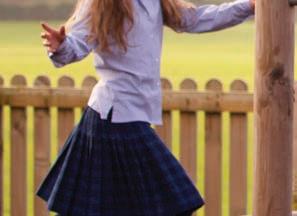
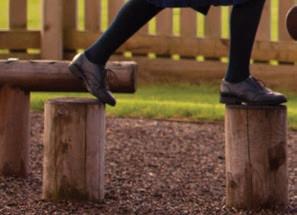
































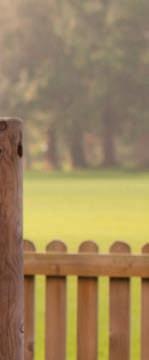
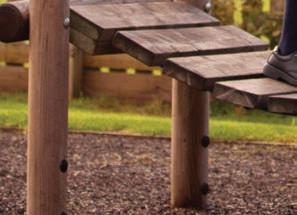






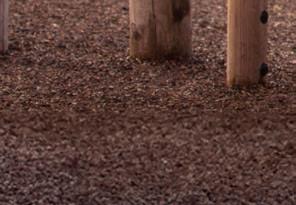
















































































































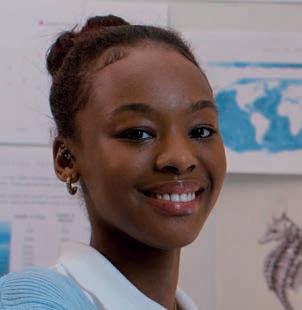















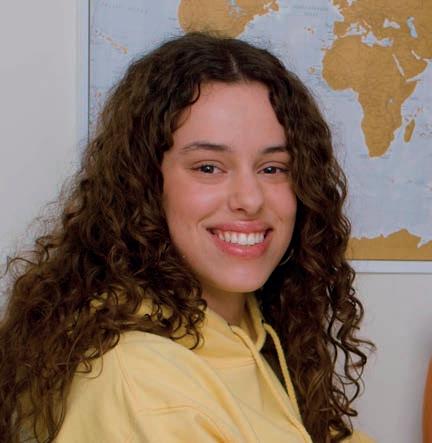








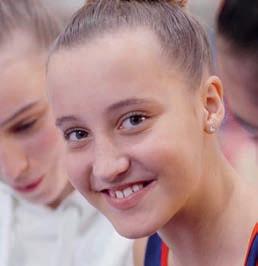













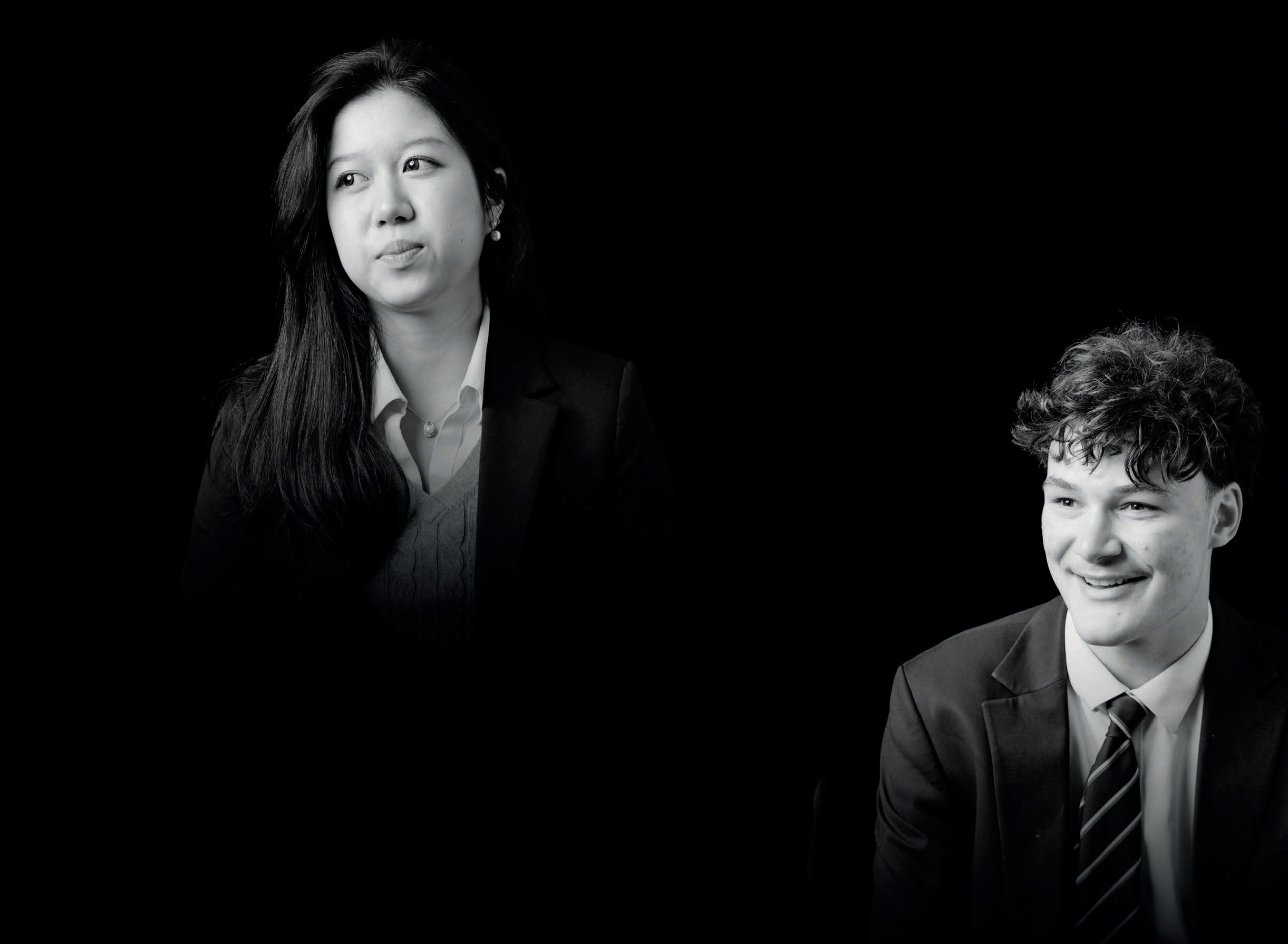

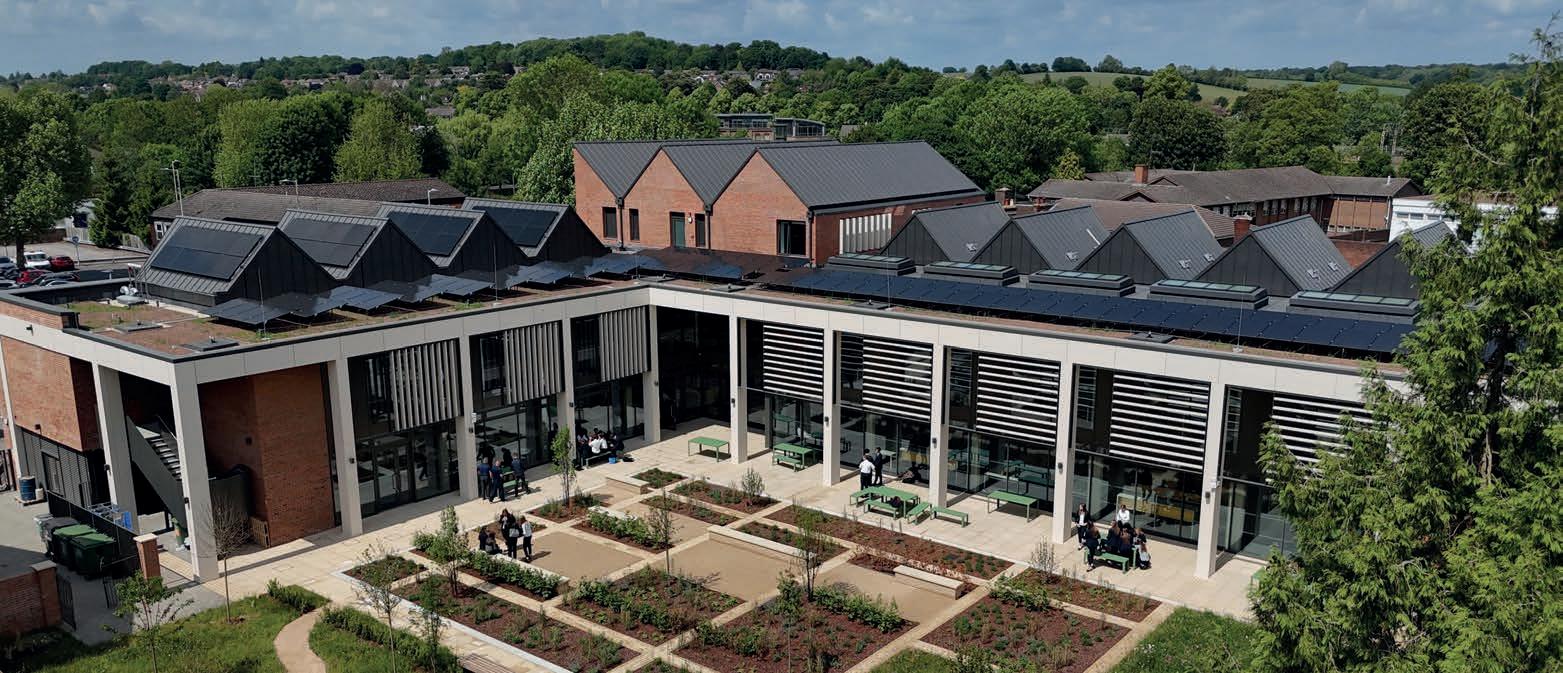
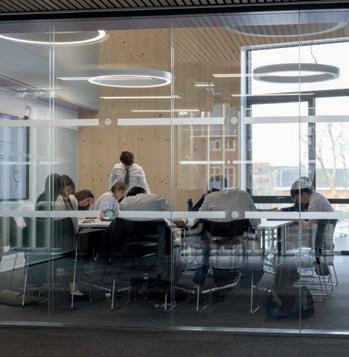










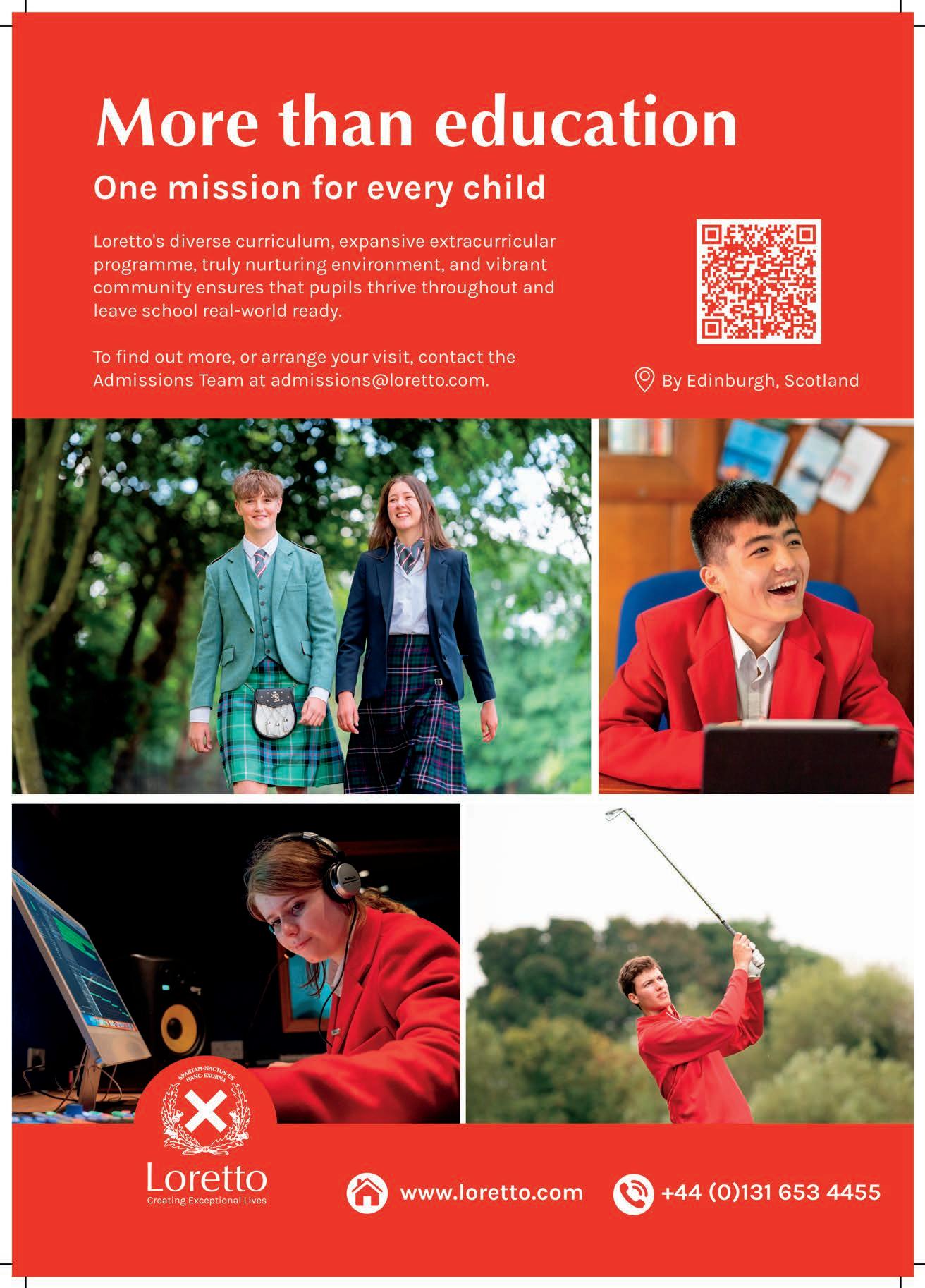






























































































































































































































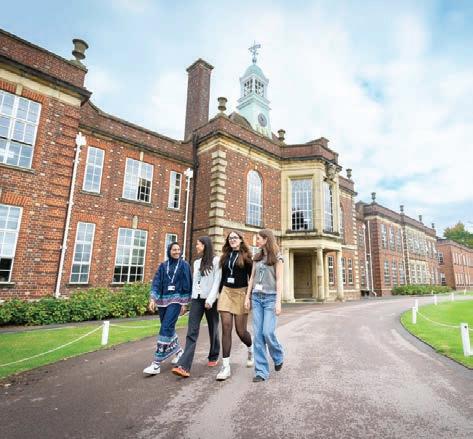


Libby Norman
Pendle Harte
Nicola Owens
MEDIA
Anna Clarke, Steve Playfoot
ART
Pawel Kuba
SENIOR DESIGNER
Suzette Scoble
MIDWEIGHT DESIGNER





































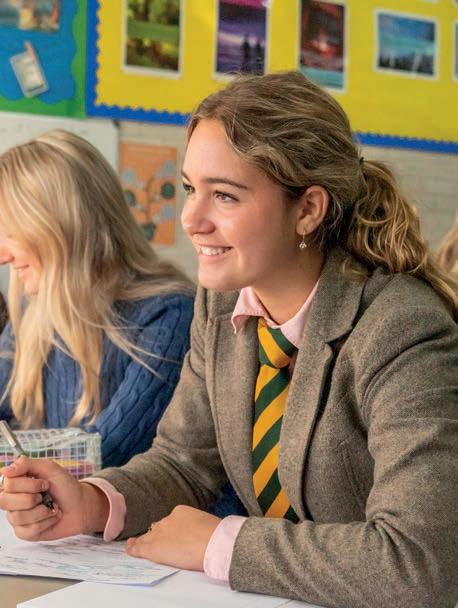
Carmen Graham
MAGAZINE DESIGNER
Mariana Suzuki
MARKETING MANAGER
Jessica Shaltout
FINANCE DIRECTOR
Jerrie Koleci
DIRECTOR
James Fuschillo
Craig Davies
PUBLISHING DIRECTOR
Sherif Shaltout























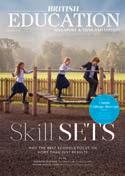
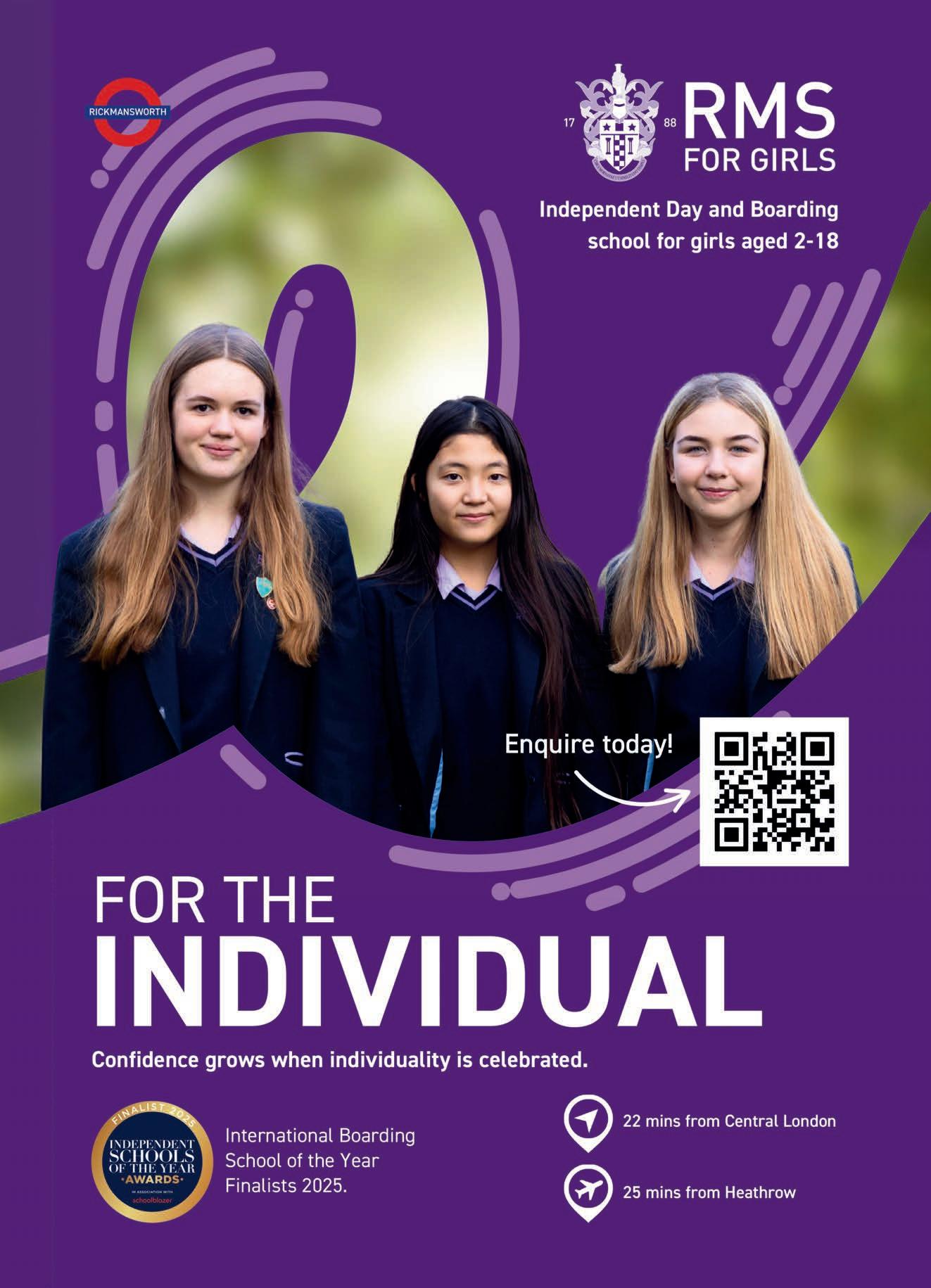
Sending children to boarding schools in the UK o ers a range of benefits that extend beyond academics. Certainly, UK boarding schools are renowned for their rigorous curricula, strong teaching standards, and excellent university preparation, helping students gain entry into leading global institutions. But there are softer advantages too. One is is language development: being immersed in an English-speaking
society. For many Asian parents, these combined benefits make UK boarding schools an investment in their children’s future success and personal growth. In this issue, we run the full gamut from 3-18+, with plenty of insights and inspiration from education insiders. In our feature about Service culture, we ask three schools about the value (and values) of extracurricular activities such as CCF, DofE and volunteering. These days there’s a much wider understanding, and also a growing recognition, of the huge value of service activities within
“STUDYING IN THE UK ALLOWS STUDENTS TO ENGAGE WITH PEERS FROM DIVERSE BACKGROUNDS, BROADENING THEIR WORLDVIEW AND PREPARING THEM FOR A GLOBALISED SOCIETY”
environment enables students to achieve fluency and confidence very quickly. Boarding school also fosters independence and resilience. Living away from home teaches young people how to manage their time, take responsibility for daily routines and adapt to new environments – and these are skills that will serve them well throughout life. Cultural exposure is equally significant. Studying in the UK allows students to engage with peers from diverse backgrounds, broadening their worldview and preparing them for a globalised
education. The skills and attributes they teach – from teamwork and leadership to self-esteem – give young people a much clearer sense of what they can achieve in the world beyond classrooms. And that, surely, is the whole point of education. Of course, results matter – but a child moving abroad for their education is likely to achieve far more than simply top grades.
Libby Norman EDITOR


Christian San José studied Geography at Oxford and trained at Sandhurst, serving in the Army within the Royal Green Jackets (The Rifles) before moving into education. He was at Radley for 11 years before being appointed Senior Deputy Head at Giggleswick School in 2021. He joined all-through Gloucestershire school Wycliffe as Headmaster at the start of the 2024-5 academic year.
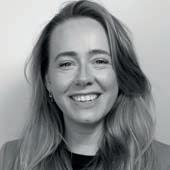
Assistant Principal, Concord College
Orlagh Hotchkiss studied Acting at Northampton University and completed her PGCE and MA in Teaching and Learning at Birmingham City. She joined Concord in 2018 as teacher of Drama and took on roles as a Head of House and Head of Year before being appointed Assistant Principal (Co-curricular, Outreach and Inclusion) in 2024.

Global Director, MPW Group
James Barton studied Archaeology and Ancient History at Warwick, followed by an MA in Performance Philosophy. Working in education for over 15 years, he has authored Trotman Getting Into... guides across a range of academic subject areas, as well as giving talks to, among others, TEDx and ‘How To Academy’.
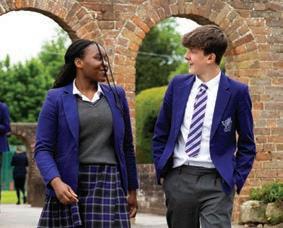

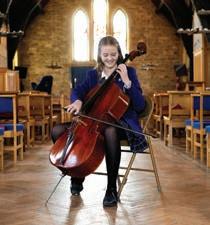
In the heart of the Cotswolds – just 90 minutes from London
At Wycli e College, we o er a dynamic all-through education for girls and boys aged 3 to 18. Nestled in the stunning Cotswolds, our school combines tradition with innovation, nurturing every pupil to thrive academically, socially, and personally.
Our pupils start the Wycli e Leadership and Discovery programme in year 9. WYLD is a dynamic course designed to unlock leadership potential, build confidence and prepare pupils for life beyond the classroom.
Students can develop wider skills and gain additional qualifications, equipping them for their next step.
The Wycliffe Way
» Fostering academic excellence through rigour, challenge, and a spirit of curiosity.
» Inspiring confident humility, generosity, and mutual respect in every interaction.
» Promoting social and environmental awareness, preparing pupils to be thoughtful global citizens.
» Equipping students with resilience, self-knowledge, and essential life skills to embrace their future with confidence.
» Creating a safe, happy, and supportive environment where every pupil feels valued and secure.
wycli e.co.uk
Contact:
admissions@wycli e.co.uk
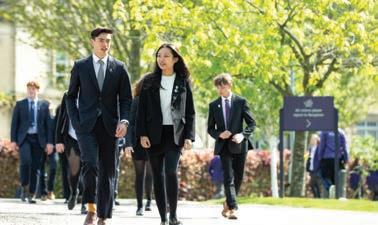
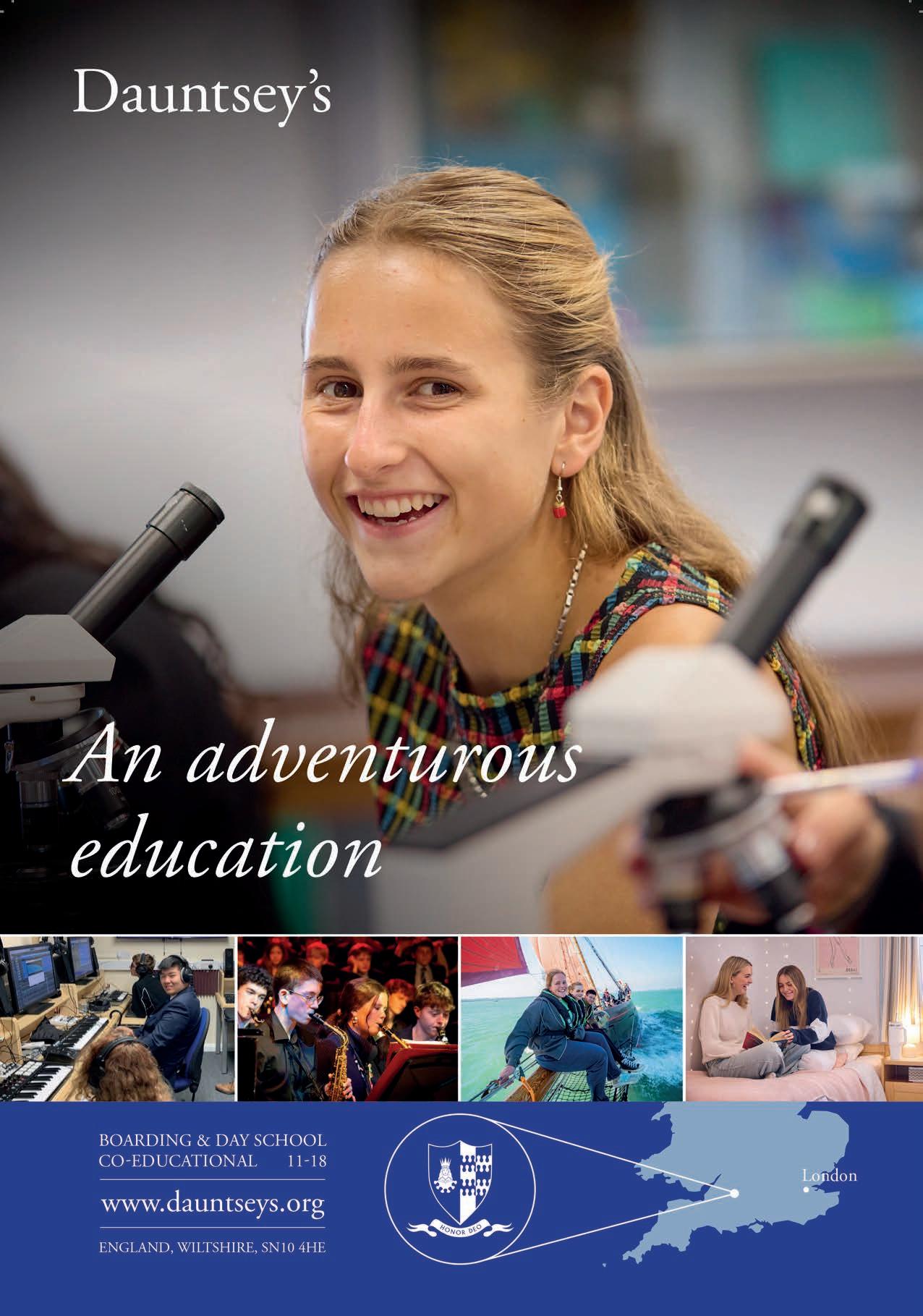
UK BOARDING SCHOOLS CONTINUE TO RANK AMONG THE BEST IN THE WORLD, DESPITE NEW FINANCIAL CHALLENGES
The implementation of valuedadded tax (VAT) on independent school fees in January 2025 brought significant new challenges to the UK boarding school sector and to many families. Parents have long aspired to send their children to boarding schools for the academic rigour, personal development, and lifelong friendships which can be made there. In this column last year, I wrote about why parents believe a private UK boarding education is worth the financial investment, but the price tag has now increased by up to 20%. In the face of these rising costs, parents are having to make di cult


Schools are equally concerned that higher fees will lead to lower student numbers. They are responding to the VAT hurdle by exploring cost-saving e ciencies, expanding bursary provision, and deepening partnerships with the state sector to widen access and ensure long-term sustainability. By introducing more flexible boarding options, developing deferred fee models and sibling discounts, schools are trying to remain accessible to a broader range of families without compromising on excellence. This adaptability is a hallmark of British boarding schools. They have thrived for centuries - not by being rigid, but by innovating, and by balancing heritage with
BRITISH BOARDING SCHOOLS HAVE THRIVED FOR CENTURIES - NOT BY BEING RIGID, BUT BY INNOVATING
and deliberate choices about their children’s future. UK boarding schools continue to rank among the best in the world, not just in terms of academic results, but in preparing young people holistically for successful careers. Through an array of learning opportunities - from robotics labs to rowing regattas, climate leadership to classical theatre –these schools shape pupils to be critical thinkers, compassionate leaders, and global citizens. Moreover, the Independent Schools Council’s 2024 census recorded some of the highest levels of pupil wellbeing and extracurricular participation to date. This is a clear testament to the emphasis that schools place on balance, enrichment, and mental health support. The big hurdle for many families now though, is a ordability.
forward-thinking ideas.
British schools have always attracted families living overseas, and many institutions are deepening their global footprint with international campuses and exchange programmes. Far from retreating into tradition, today’s boarding schools are increasingly outward-looking and readying pupils for further education as much from outside the UK as from inside. An education in the UK is not just about tradition or prestige; it is about nurturing curious, confident, and capable young people, equipped to thrive in an unpredictable world. That is something no tax can diminish.
Stephanie Cheah FOUNDER, BESSA BESSA.ASIA

Hurtwood House has cemented its position as ‘best school for Media Studies’ for the second year, with student Evie achieving the top mark in the world. Evie, who is off to IE Business School, Madrid, was presented with a certifi cate by her teacher Stuart Butcher. In all, 23 of this year’s Media A-level students earned A* grades.
“Evie is top in the world for Media Studies A level –and 22 Hurtwood classmates also earned an A* grade”






Moor Park School staged a large-scale production of Shrek the Musical JR . for students in Years 6-8, bringing the characters of Shrek, Fiona, Donkey, and others to life with enthusiasm and professionalism. “The energy and enthusiasm from everyone – on and off the stage – was simply amazing,” says Moor Park Head of Performing Arts Toby Dunham.
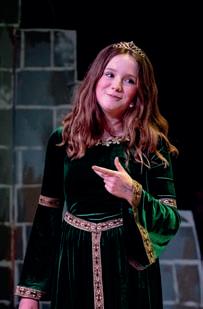
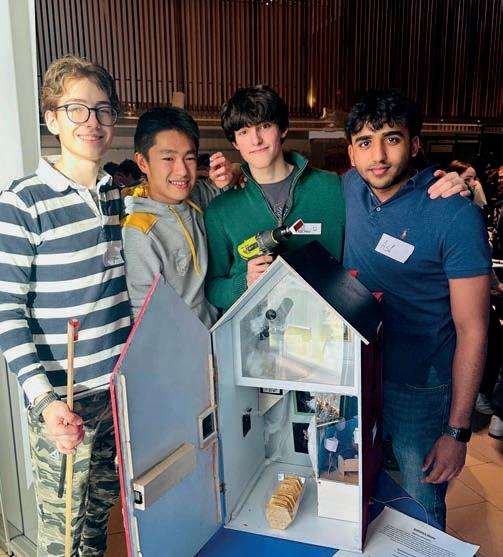
Dulwich College hosted the national round for the international physics challenge, the Weizmann Safecracking Competition, with its own team achieving fi h in this tough event. With 21 safes entered by students from 16 different schools, the competition tested creativity, engineering skills and problem-solving abilities – also requiring exceptional teamwork.
James Pater, Upper Sixth pupil at The Leys, has signed his fi rst professional contract with the Northampton Saints. This milestone comes a er representing England U18 in the Six Nations this year, earning caps for England U19 and leading The Leys to victory in the Uppingham Sevens tournament. “It is a dream come true,” he says.







Queen Anne’s School (QAS) celebrated a er its U19A lacrosse team were crowned champions at the National Schools Lacrosse Tournament. QAS fought through two days of competition to secure the title for the fi rst time in nearly 30 years, the win being secured a er a hard-fought 3-2 victory over St Catherine’s, Bramley.
“The human mind has not achieved anything greater than the ability to share feelings and thoughts through language”
JAMES EARL JONES
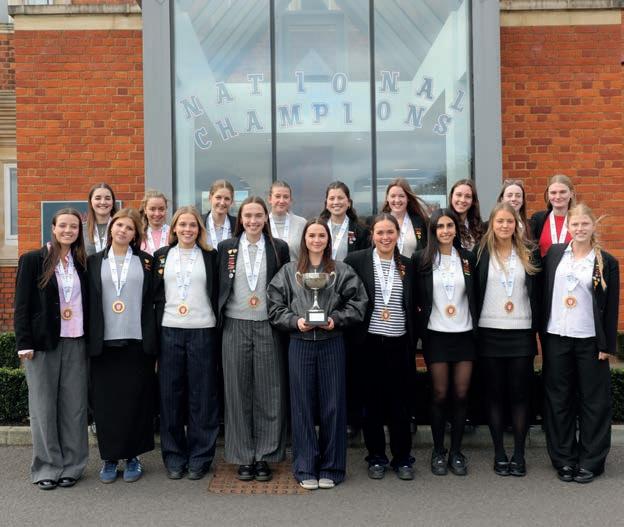

Feltonfl eet’s Digital Prefects confi dently demonstrated the school’s own AI-powered learning assistant, RileyBot, at a recent meeting of Pre Senior Baccalaureate (PSB) schools to discuss Artifi cial Intelligence in education. Leading discussion and answering complex questions, the Year 8 pupils showcased how pupil voice and digital leadership are shaping the future of education.


Queen Ethelburga’s Collegiate has a new driver for the CityCar Cup Championship, incorporating the Student Motorsport challenge 2025. Emilia Vincent, an ex-Motorsport Engineering student from Wiltshire College, brings a wealth of experience. The Collegiate launched this as an extracurricular option in 2022 – you can follow the team at @qemotorsports.

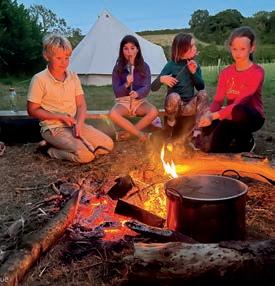
Mill on the Brue activity centre off ers lots of fun adventures, but it’s also celebrating its Zero Heroes food waste policy (no food waste a er meals), now running for over a decade at the site. It’s one of many green initiatives, including ongoing tree planting and a coach escort from London to Somerset for Summer Camps.



From September, the International School of London will offer secondary students (11+) a Japanese language acquisition option, alongside French, Spanish and Mandarin. ISL Head Richard Parker (pictured with teacher Tamako Matsukuma) says it sits alongside 24 home languages already at the Chiswick school.




















Wellington student Momo X has won a host of awards for his photography, featured in his book, The Art of Small His passion for ‘ultra-macro’ photography started young, and at 15 he became the youngest Chinese photographer to appear in National Geographic





“How very little can be done under the spirit of fear”

“THE MOST DIFFICULT THING IS THE DECISION TO ACT, THE REST IS MERELY TENACITY”



THE PERFECT PLACE TO LIVE with everything on your doorstep

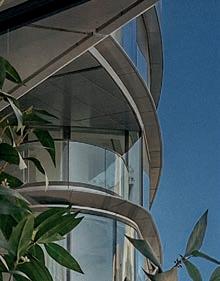



















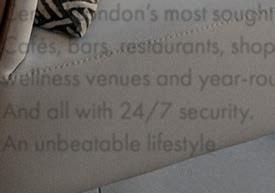





Central London’s most sought-after neighbourhood. Cafés, bars, restaurants, shops, cinemas, wellness venues and year-round events. And all with 24/7 security. An unbeatable lifestyle
Studio, 1 & 2 bed apartments from £800,000. Available to move into now.

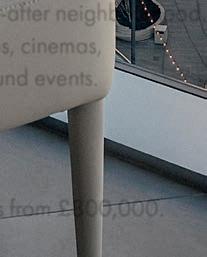
















Malvern School teenagers braved soaring temperatures to race some 200 miles against the sun with no technology or navigation aids. The pupils, all aged 14 and 15, participated in the fi rst ‘Race the Sun’ from Kent back to the Malvern Hills, collecting for charity along the way. The top three teams were all female.
St Benedict’s School in Ealing has announced that pupils in the Junior School will no longer sit the 11+ entrance exam for transferring to its Senior School from September 2025. It says this allows students to maintain momentum in learning and ensures a smooth, confident transition. The decision followed a consultation with parents, who were overwhelmingly in favour.
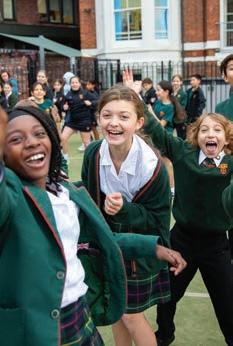
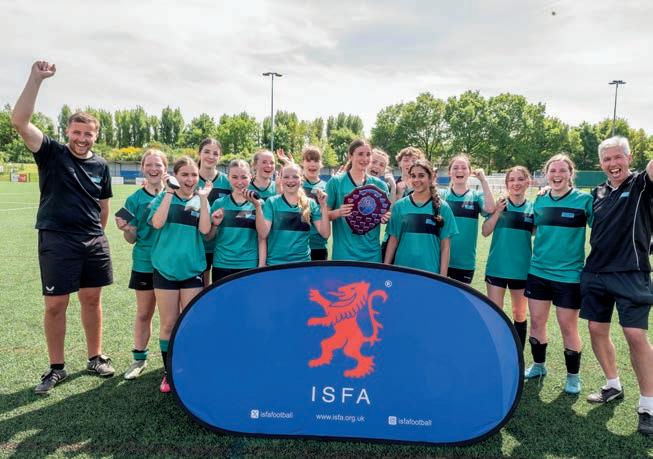



Bedford School Sixth Form student Alex Lamb reached the fi nals of the Pupil Library Assistant of the Year Awards (PLAA). The award celebrates pupil librarians across the UK and he was nominated by the school’s Library and Information Manager Lauren Chatley. “It is testament to Alex that he fi nds himself on this year’s list,” she says.
Moulsford Prep in Oxfordshire has brought forward the next phase of its co-ed plans and will begin welcoming girls into Year 3 (age 7) from September, a year ahead of schedule. The school has been busy preparing facilities, curriculum and training in readiness for the new cohort. Moulsford Pre-Prep has already moved to co-education.
Haberdashers’ Elstree Schools raised £190,000 for bursary and hardship schemes during a giving day in April. This year’s focus was on helping current students. There were fun runs, including the GivingDash to run 3.5km and unlock extra donor funds. Further MiniDash and TinyDash events took place for the youngest pupils.
Stephen Perse Cambridge girls’ football team won the national Independent Schools Football Association U15 Girls Shield. A er securing victories in the fi rst four rounds, the girls beat St Dunstan’s College 3-1 in the fi nal. “They are now looking forward to building on their success,” says Deputy Head of Co-Curricular Jenny McLeod.
Parents in the British Army, Navy, Marines and RAF will pay just ten per cent of school fees for their children boarding at Felsted School from September. With one of the oldest CCF contingents in the country, the Essex school has a long tradition of welcoming Forces families and those in receipt of CEA will be eligible.






“THE MORE YOU DO SOMETHING, THE LESS FRIGHTENING IT BECOMES BECAUSE YOU START TO REALISE THE OUTCOME IS NOT AS IMPORTANT AS YOU THINK” HUGH JACKMAN

Gordon’s School Pipes and Drums students had a once in a lifetime opportunity, performing at Windsor Castle for His Majesty The King, the school Patron. The school is the National Memorial to General Gordon and in this, its 140th anniversary year, the Pipes and Drums are performing in places associated with General Gordon.
A er the performance, The King spoke to all 52 members of the Band, joining them for a photograph.
This month sees the appointment of a new Principal, Emma Arrand at Wymondham College in Norfolk. Wymondham College is the largest State Boarding and Day school in the UK. Her appointment marks an exciting new chapter at the College, continuing to build on the school’s outstanding reputation.
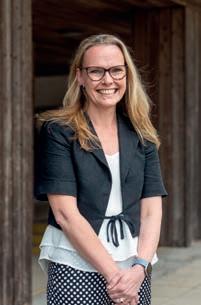

Sheffield Girls’ GDST is celebrating the outstanding success of the Class of 2025, with 35% of grades at A and 66% at A*–A.
An impressive 72% of pupils moved on to Russell Group universities or Oxbridge. These results highlight the ambition, confidence and academic excellence fostered by an all-girls education at Sheffield Girls’, one the top ranked schools in the north of England.
The 2025 cohort at Colchester Royal Grammar School achieved the school’s largest ever number of Oxbridge offers, with more than 40 places secured across all subjects. CRGS encourage our students to enjoy challenge and aim high in an education experience which values dedication, collaboration, enrichment of education through extracurricular activities, and has a history of academic excellence.


SOMETHING THEY SAID
“EVERYBODY IS A GENIUS. BUT IF YOU JUDGE A FISH BY ITS ABILITY TO CLIMB A TREE, IT WILL SPEND ITS WHOLE LIFE BELIEVING THAT IT IS STUPID”
ALBERT EINSTEIN
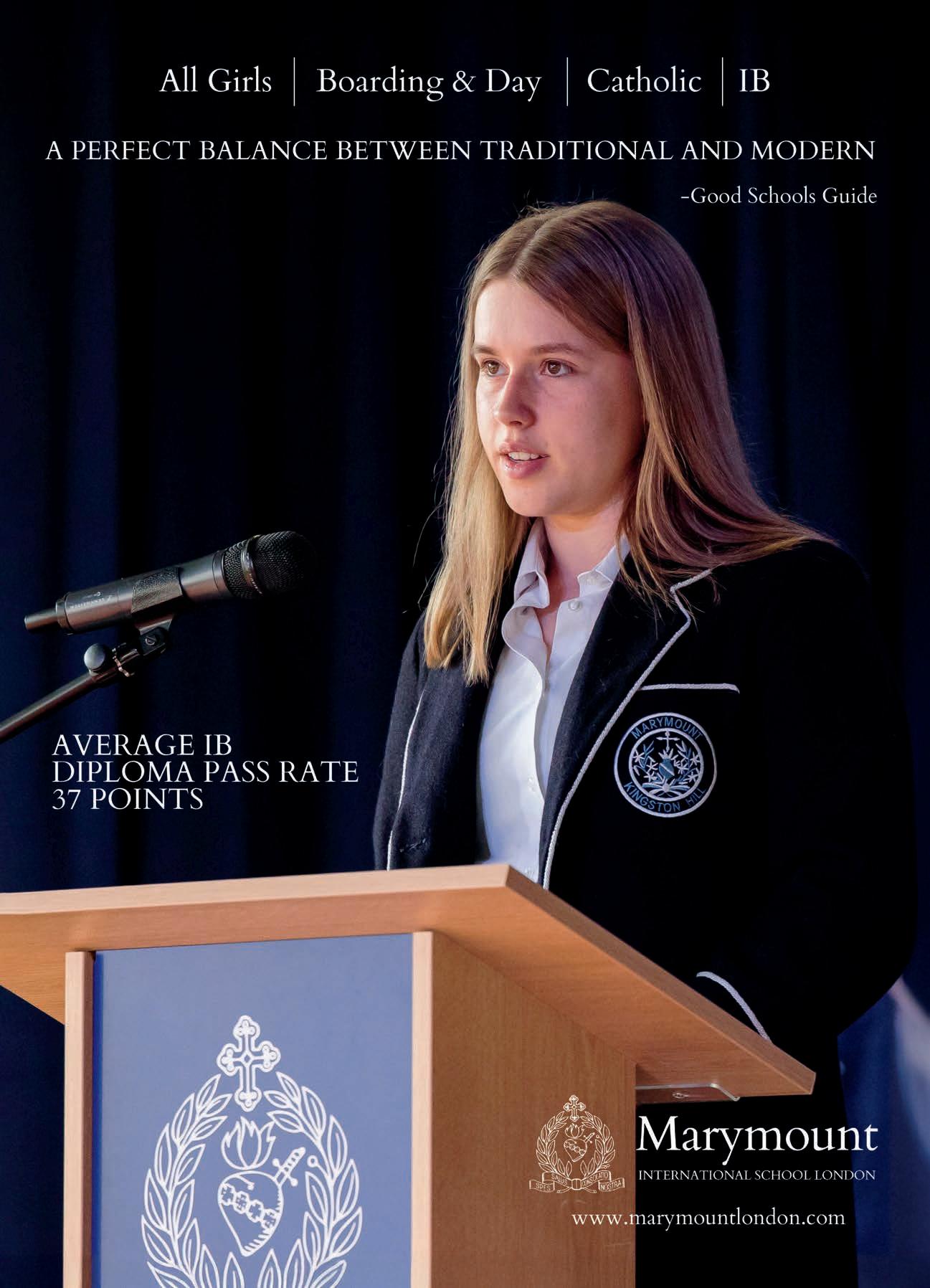



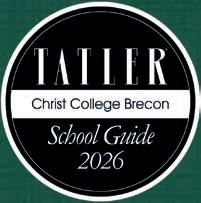



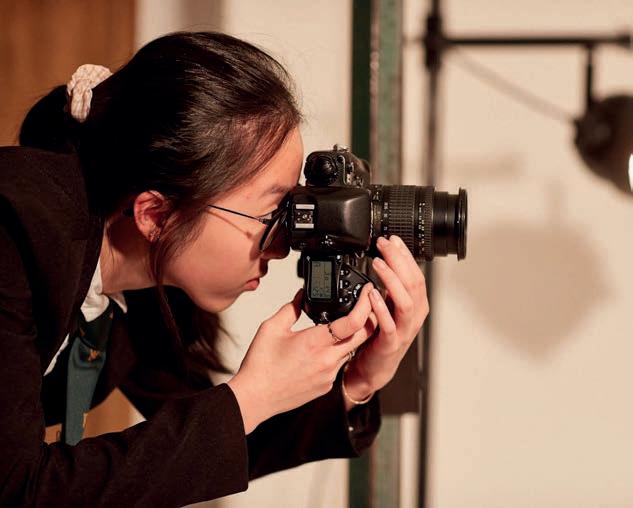





Christ College Brecon has been a strong centre for learning for the last 500 years. British Education discovers what makes it such a sucessful global establishment
Christ College Brecon enjoys a glorious location and long heritage. How have these elements shaped its 21st century ethos and values?
Founded in 1541 by Henry VIII, Christ College has been a community of learning for over 500 years. Our pupils still dine and worship in 13th-century Chapel and Dining Hall, while proudly wearing the traditional ‘h’ emblem recognised by generations of Old Breconians worldwide.
This heritage underpins a modern, forward-thinking school that blends tradition with innovation. Our motto, “They achieve because they believe they can,” remains central. Self-belief is the foundation of our ethos: pupils are supported to develop character, confidence and resilience within a safe, close-knit community. Our location in the Brecon Beacons National Park strengthens this spirit of discovery, encouraging pupils to value both history and the natural environment as they grow into responsible global citizens.
You have an award-winning cocurricular programme. Can you describe how this helps to challenge and develop pupils – and ensure they have lots of fun?
Our award-winning co-curricular programme makes full use of our extraordinary setting. The Good Schools Guide praised our Saturday programme as “one of the most exciting… we’ve seen,” with activities ranging from mountain biking, paddle boarding and climbing to robotics, debating, music and golf.
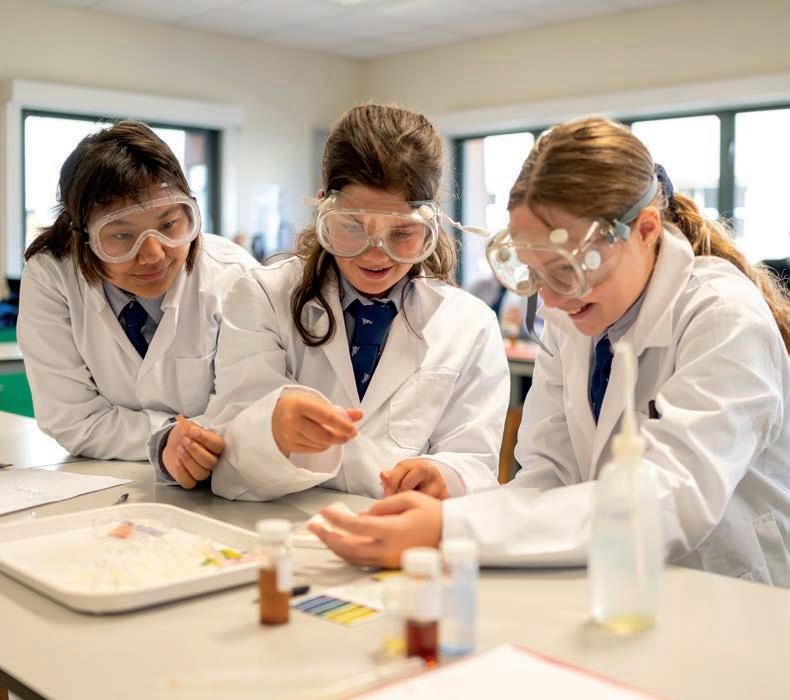
“Self-belief is the foundation of our ethos: pupils are supported to develop character, confidence and resilience”
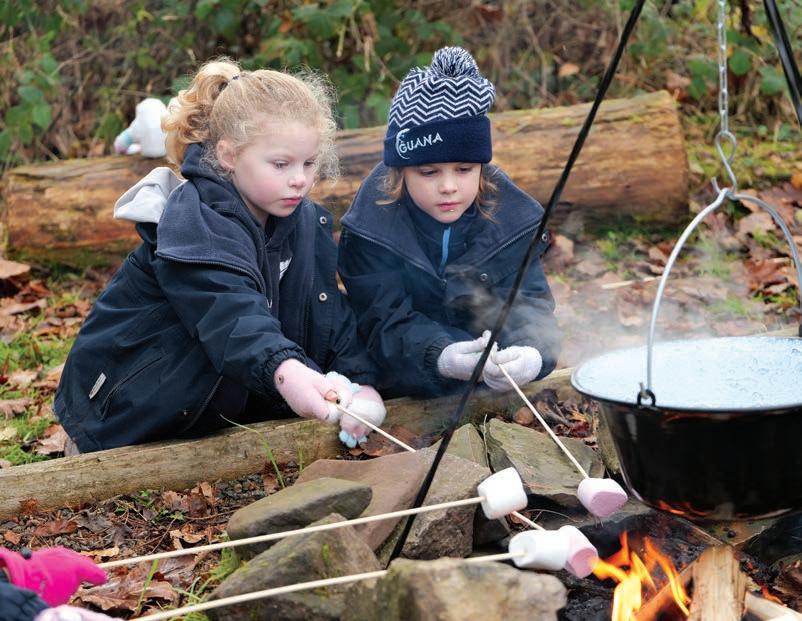
Pupils are encouraged to try something new each term, developing adaptability and confidence. Leadership opportunities exist within teams and societies, while friendly competition builds resilience. Adventure Days at the start of term use the landscape of the National Park to promote teamwork, independence and a sense of belonging.
A unique feature is our Year 9 Beacon Course, designed to strengthen selfknowledge and wellbeing. Rooted in positive psychology, it includes mindfulness practice, reflective discussions and resilience training. By engaging in shared challenges such as outdoor pursuits, and guided reflection, pupils learn to manage stress, support one another and celebrate personal growth.
Our co-curricular culture is not only enriching but fun — ensuring pupils leave with lifelong skills, friendships and memories.
“Pupils know they are seen, supported and valued, whether they are from the local area or from overseas”

As a through school with small class sizes and a mix of local, national and international students, what are the pastoral and community approaches that ensure pupils quickly feel like they belong?
Belonging is central to the Christ College experience. House competitions in sport, art and music run throughout the year, and “Spirit Days” bring the whole community together in celebration of talent and teamwork. Every pupil contributes and takes pride in representing their house.
We champion pupil voice: Sixth Formers serve as prefects and meet weekly with sta to address pupil concerns and share ideas, fostering agency and responsibility. Termly assemblies celebrate individual and collective successes, reinforcing self-belief through recognition from sta and peers alike.
Our small class sizes, diverse student body and family-style houses create a culture of care. Pupils know they are seen, supported and valued, whether

they are from the local area or from overseas. This inclusive environment nurtures confidence and ensures every pupil quickly feels at home.
You are an ‘all-rounder’ and with great results – notably in maths and sciences. What is the academic approach to ensure every pupil fulfils their potential?
Our academic philosophy balances high expectations with personalised support. Central to this is our system of grade reviews: five checkpoints each year where every pupil’s e ort and attainment are assessed across all subjects.
Grade reviews inform tutorial sessions, where targets are set and progress discussed openly with pupils. Parents are kept updated, while tutors, Houseparents and academic sta collaborate to provide tailored interventions when needed. This joined-up approach ensures challenges are addressed quickly, and achievements are celebrated.
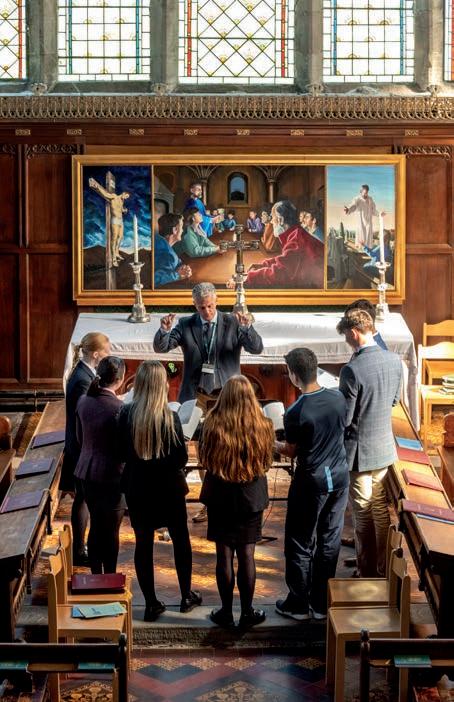
The result is an environment where pupils are motivated to work hard, while also developing the independence and resilience required for lifelong learning. Excellence in maths and sciences, alongside strong results across the curriculum, reflects the impact of this structured yet supportive framework.
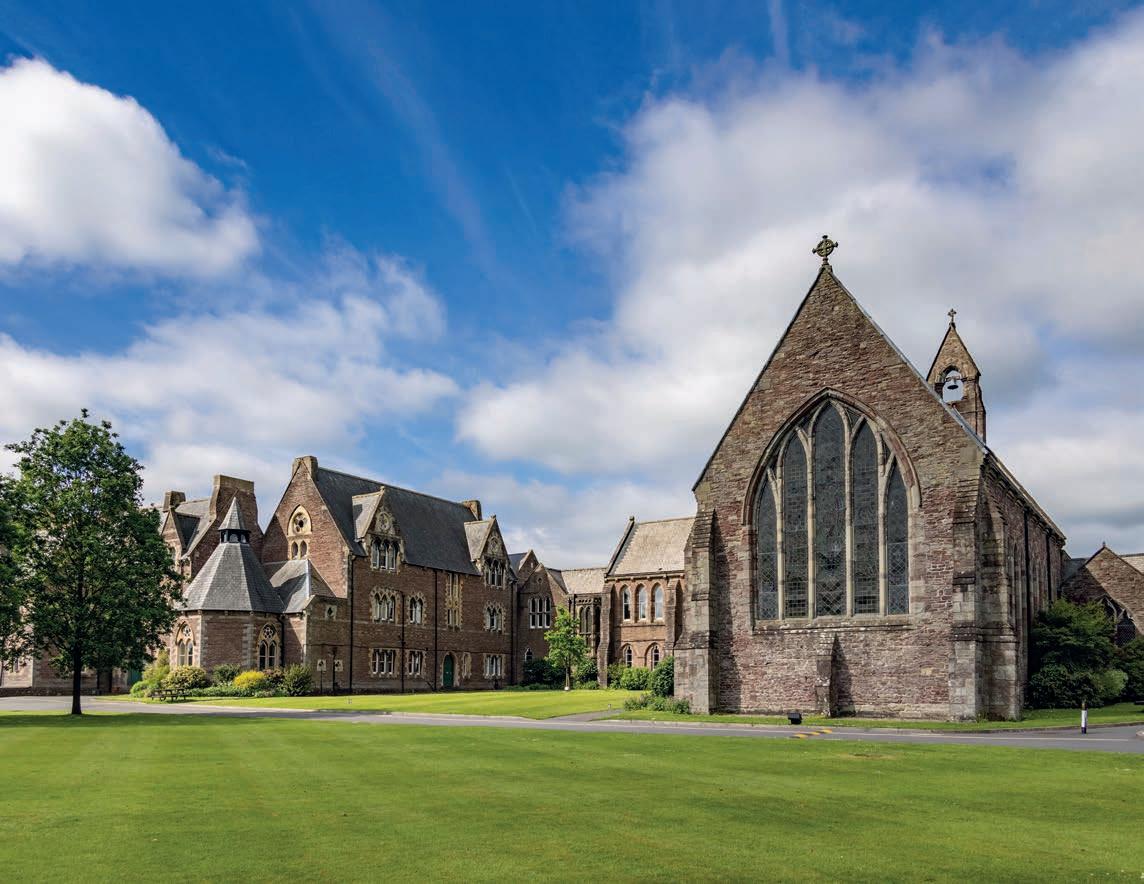
How is boarding designed and what how do social and cultural opportunities enrich life for Christ College Brecon boarders?
Boarding is at the heart of Christ College life. We have five boarding houses — two for girls, two for boys (ages 13–18) and a co-educational junior house (ages 10–12) — plus two hubs for day pupils. Each is led by a dedicated Houseparent who lives in the House with their family (and pets!), ensuring a nurturing, home-from-home environment.
Boarders enjoy a rich social programme: from movie nights, baking and games evenings to celebratory year-group dinners in the local town.
Saturday nights bring the houses together for shared activities; a game of rounders in the summer is a firm favourite, while Sundays combine relaxation with organised trips — shopping in Bristol or Cardi , visiting castles and museums, or seasonal events like ice skating at Winter Wonderland.
This vibrant mix of house traditions, local excursions and whole-school gatherings creates lasting friendships across ages and backgrounds. Pupils develop independence in a safe, supportive community, with cultural opportunities that broaden horizons and deepen the sense of belonging that defines boarding at Christ College.
“Boarders enjoy a rich social programme: from movie nights, baking and games evenings to celebratory year-group dinners”
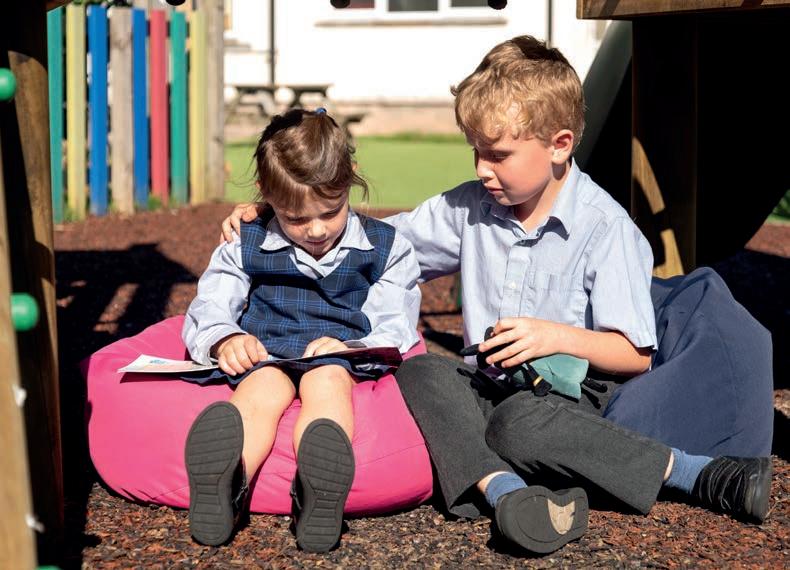



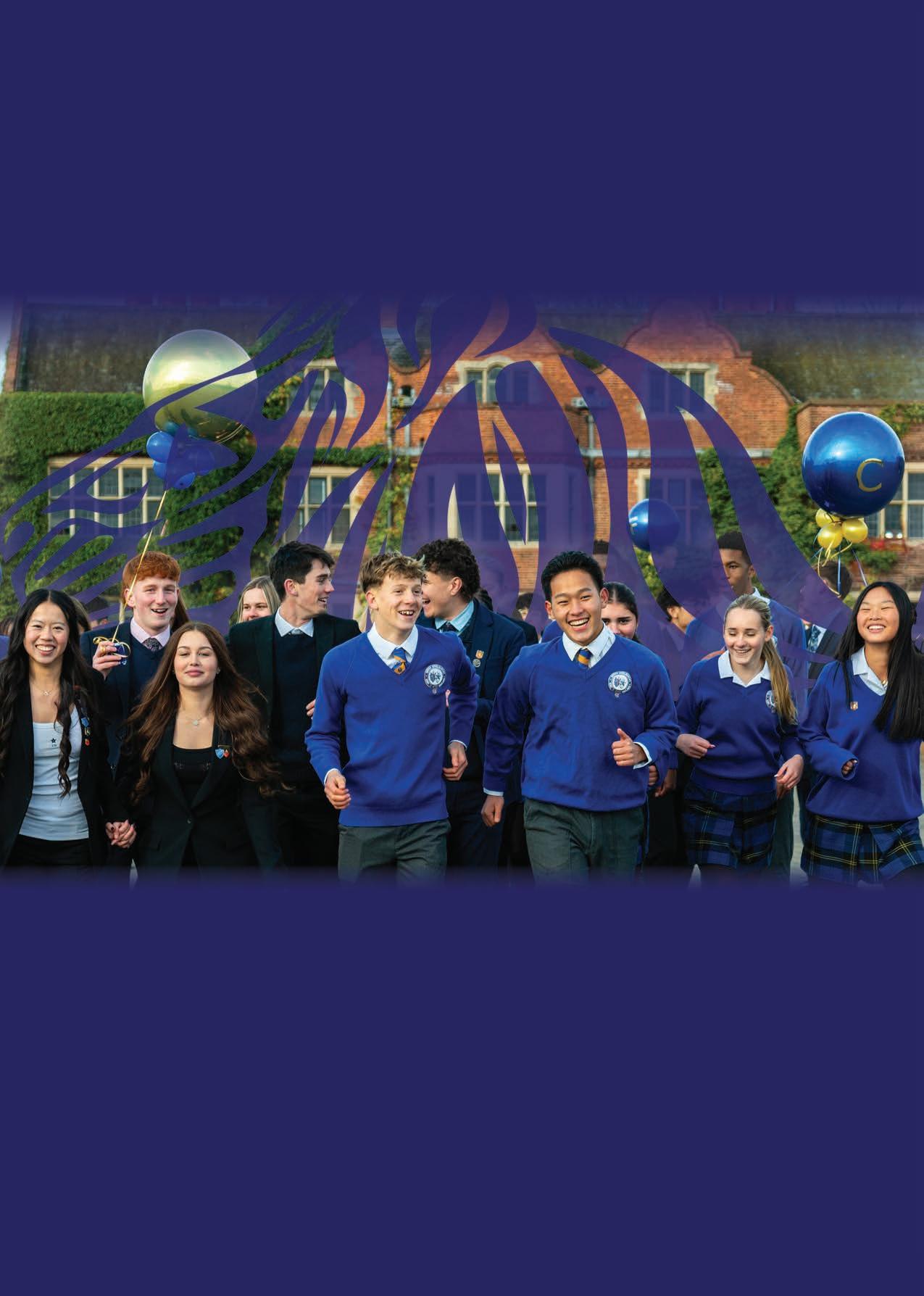

The Heads of Sherborne Girls and Sherborne Boys on delivering the right combination of skills and attitudes to prepare pupils for a changing world
Education is undergoing one of the most profound transformations in living memory. In a world being reshaped by technological disruption, climate challenges, and shifting cultural and geopolitical landscapes, schools face an urgent question. How do we prepare young people to thrive as resilient, ethical leaders who are empowered to create a positive future for themselves and the world around them?
For decades, academic attainment has been the dominant measure of school success. Grades, university places and league table positions have provided clear, if narrow, benchmarks. Yet employers, universities, and pupils themselves are increasingly signalling that this is not enough. Character, wellbeing, adaptability,
“Young people must be equipped not just with knowledge, but with the self-awareness, resilience, and ethical compass to thrive”
teamwork and the capacity to collaborate across disciplines are emerging as equally important currencies in the 21st century.
At Sherborne Schools Group, we believe these are not competing priorities but complementary ones. Academic rigour provides the intellectual foundations, but it must be balanced with intentional character development and the cultivation of wellbeing. If young people are to successfully navigate complexity and uncertainty,

they must be equipped not just with knowledge, but with the self-awareness, resilience and ethical compass to thrive.
This integrated approach requires more than adding a wellbeing lesson to the timetable or running a leadership workshop. It involves embedding these values into the daily fabric of school life – through mentoring, pastoral systems, opportunities for reflection and leadership roles that allow pupils to learn by doing. It means we must ensure that success is defined not only by examination results but also by the capacity to act with integrity, to care for others and to make responsible decisions.
The challenge, of course, is how to achieve this balance while also respecting each pupil’s individuality. Learners are not a homogenous cohort.
This means schools must design flexible, personalised pathways that stretch the most able and inspire and support every learner, whatever their starting point. Interdisciplinary approaches, digital fluency and real-world projects all help to ensure that learning feels meaningful and remains relevant.
Crucially, this balance also positions pupils to become innovators and changemakers. By linking academic study with entrepreneurship, sustainability and community engagement, schools help young people see themselves as active contributors to society, not passive recipients of knowledge.


It requires courage to move towards an integrated model of education. We also need evidence-based evaluation, so that schools can measure progress in character and wellbeing as rigorously as they measure exam performance. And it calls for a culture in which sta are supported to be innovators, modelling the adaptability and creativity we expect from pupils. Despite these challenges, the prize is great. By aligning academic excellence with character and wellbeing, schools prepare young people who are not only knowledgeable but also grounded, empathetic, and future ready. In a rapidly changing world, this is not a luxury – it is an imperative.

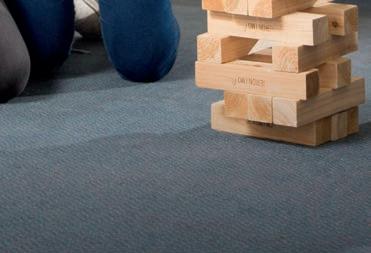



For international students like me, this phrase is synonymous with the feeling of living in a boarding house with entire oceans between us and our families. When I first started boarding at 13, I was both overwhelmed by the unfamiliar environment, and struck by the freedom that came with living away from my family. These feelings highlight the vital role of boarding houses, as they are key to ensuring students are supported by the school while still allowing room for
personal growth. During my first term, when I was struggling with homesickness, my older roommates who also lived abroad helped me overcome it. Drawing from their own experiences, they encouraged me to participate in house events to stay busy and make friends. Their support showed me the importance of the house community, especially for international students.
The community feeling within houses is further emphasised by house colours and mascots, which are a source of strong pride and identity (even with more unconventional colours like brown!). Yet
nothing compares to the exhilaration of sharing house achievements and winning competitions alongside your housemates. Post-victory celebrations often create unforgettable memories that last a lifetime. For me, however, it’s the house traditions that are the most memorable. The best ones feel like shared secrets passed down through the generations, linking us not only to each other but to those who came before. Some will remain secret, but moments like Christmas dinners and carved names on windowsills are timeless classics that we continued during my time there.

In my opinion, boarding houses are perhaps the most defining aspect of the boarding school experience. Although some of my friends felt that it was the friendships, rather than the act of boarding itself, that influenced our overall experience, we eventually realised that the two are inseparable. Friendships and boarding life go hand in hand to shape the core understanding of what boarding school is and what it means to us personally. Every boarding house is randomly allocated and thus di erent and unique, each with its own distinct characters and dynamics. This is both advantageous and disadvantageous; young adults are bound to clash when living in such close proximity. But part of the charm of boarding is living with other teenagers, and this requires having respect for others and their boundaries, making the most of the experience.
For five out of seven years at my
Friendships and boarding life go hand in hand to shape the core understanding of what boarding school is
school, we lived in mixed-age dorms with the eldest girl as “head of dorm” to keep the younger girls in check. I fondly remember receiving, and also passing down valuable (and sometimes questionable) advice and gossip, carrying on the stories and traditions of those before us. My most treasured memories were the smaller, more intimate moments that cemented my boarding house as “home”. It was playing Mario Kart for hours with my girls (who are now my best friends) and the cookies we burned together in the kitchen oven. It was the late-night sneaking around, trying not to get caught by Matron, and the deep, meaningful chats that bonded us in ways only possible between girls living together and sharing their most vulnerable moments.
In my final year, our year group moved out of mixed-age houses into smaller boarding houses with each other, which mimicked university life. Together, we
learned how to cook, accidentally shrank our clothes in the laundry, and helped each other prepare for the world beyond school. Now, having finished my first year of university, it is clear to me that boarding has smoothened my transition. I found an instant connection with other boarding school graduates because our similar experiences created a natural bond. In contrast, many of my friends from day schools struggled with hurdles that I had to overcome years ago - like homesickness and even folding sheets.
Looking back, I realise that these life skills were ones that I picked up simply by living in my boarding house and interacting with a diverse spectrum of people from di erent backgrounds. For international students like me, the boarding house wasn’t just where we stayed. It truly became our “home away from home” – a place where we found comfort, belonging, and the space to grow into ourselves.
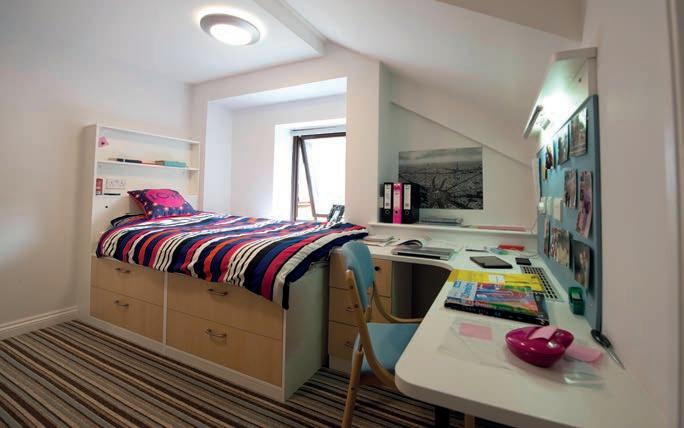




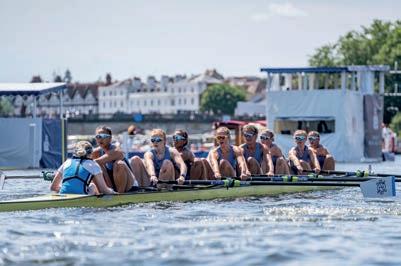
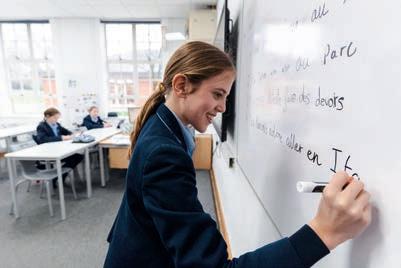
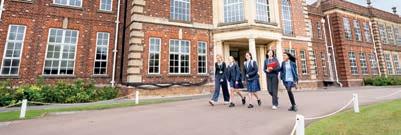
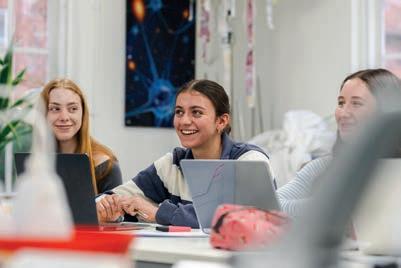












Be who you want to be



Day and boarding school in the heart of Oxford for girls aged 11-18




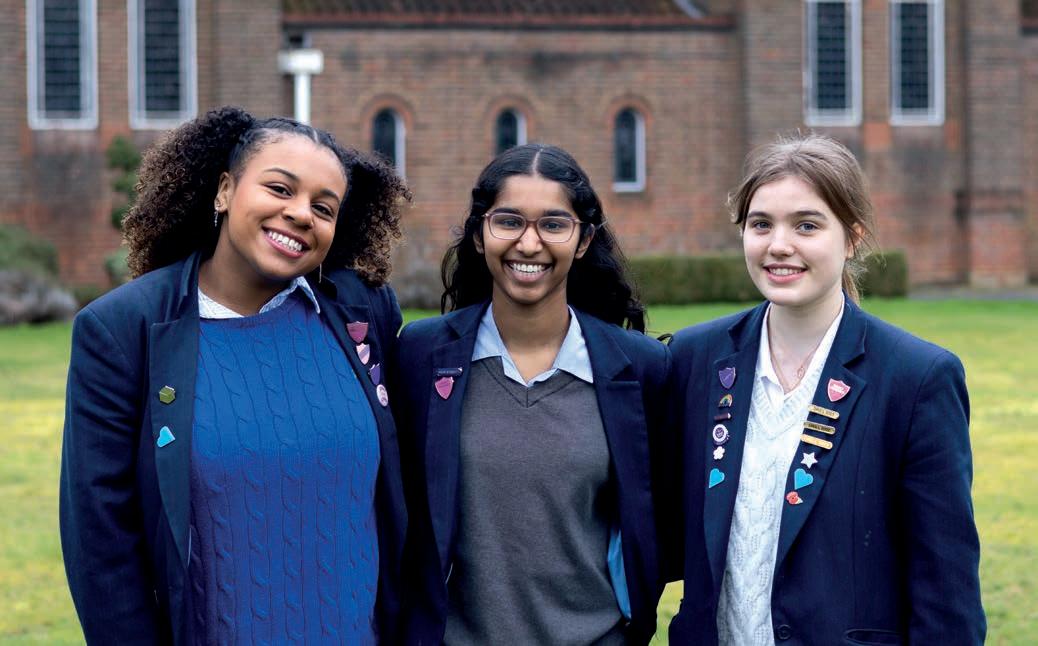
Clare Freeman of RMS for Girls on why students should study to their strengths and interests to prepare for the future of ‘squiggly’ career paths
You’ve likely heard of ‘Squiggly Careers’, a concept pioneered by Sarah Ellis and Helen Tupper of organisation ‘Amazing if’. The idea is simple but powerful: we must prepare our students for a working life that is anything but linear. With jobs constantly evolving, the straight career path is becoming a relic of the past. Adults today must be agile, learning new skills and pivoting between roles as the job market shifts. This is the essence of a squiggly career.
As Head of a Sixth Form, I see this challenge firsthand. I spend countless hours guiding students and their parents through the crucial process of choosing A-level subjects. Yet, too often, these conversations are framed by a rigid, predetermined notion of what a student should be. A parent might insist their daughter study Maths ‘because it’s a good A level to have’, or Business ‘because she wants to go into business’. Similarly, some students have had their hearts set on a specific career, such as medicine, since childhood. This tunnel vision can blind them to what might be a better, more fulfilling path for them – one that suits their strengths and interests. Don’t get me wrong, Maths is a fantastic subject, but if a student struggles with
“A top UK accountancy firm once shared that their largest group of graduate recruits hold a History degree, not one in Maths or Economics”
it, forcing them to take it isn’t a good idea. A student can absolutely get into a top university and secure a well-paid job without a Maths A level. The real goal should be to find a route that brings them both happiness and success. Interestingly, a top UK accountancy firm once shared that their largest group of graduate recruits hold a History degree, not one in Maths or Economics. Why? Because these students have honed critical skills like analysis and attention to detail – skills that are essential in any industry. Every subject develops a unique set of skills, and it’s these transferable abilities that we should be focusing on.
At RMS, we champion an educational philosophy that is all about the individual. With 28 di erent A-level subjects on o er, we
can help each student find the combination that plays to their strengths and passions. Our Futures’ Fridays programme, run by our dedicated Futures department, gives students the opportunity to see how their unique skillsets are valuable in any industry. Whether they are creative thinkers, problem solvers or team players, they learn that every industry needs people with diverse skills and perspectives. Our phenomenonbased learning course takes this a step further, allowing students to tackle realworld problems from a multidisciplinary perspective. By collaborating with peers from di erent subject areas, they see firsthand the value of diverse viewpoints.
So, when you’re thinking about your child’s next steps, help them embrace a squiggly education. Encourage them to focus on what they enjoy and are good at, even if it means them changing their plans along the way.








































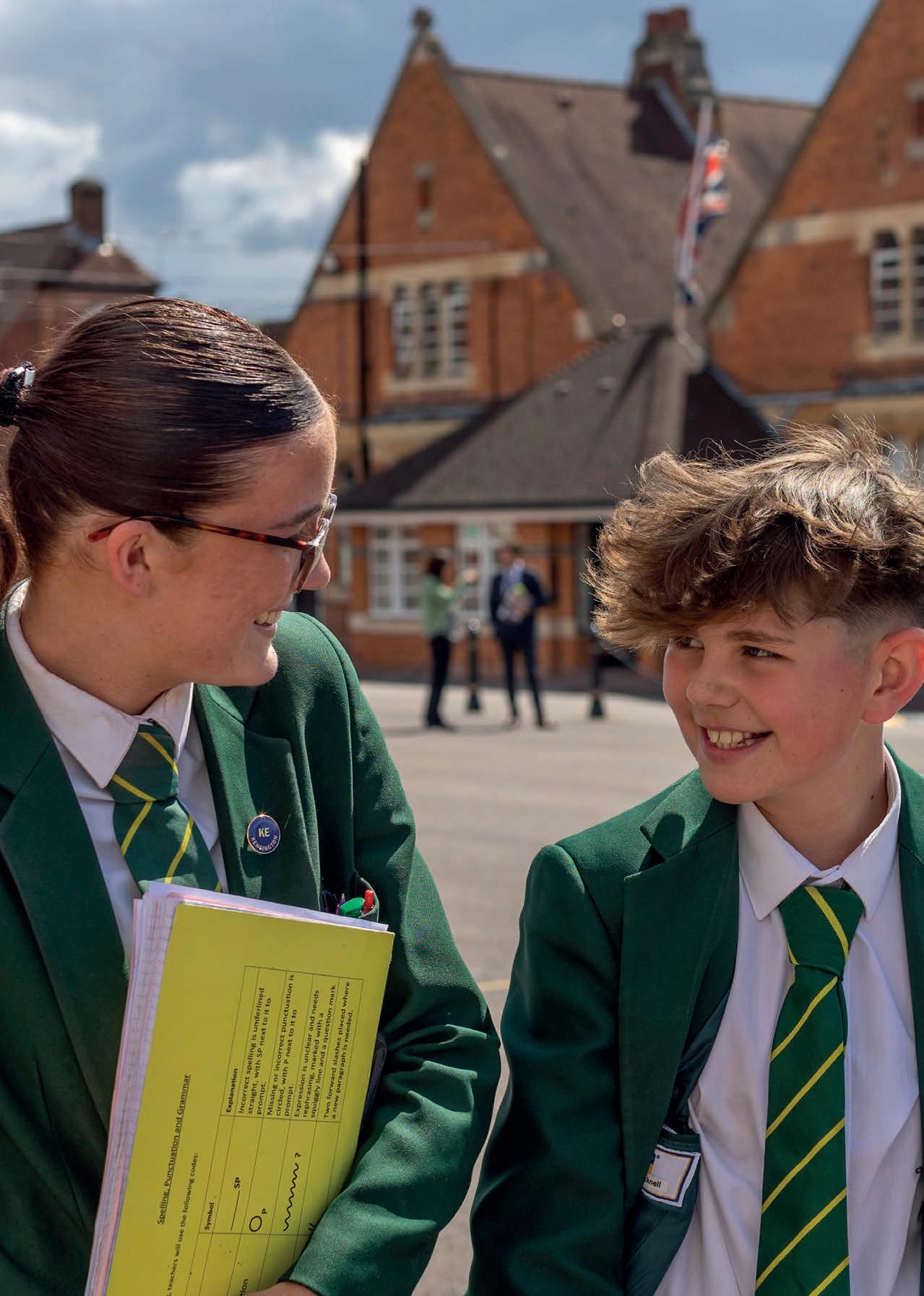
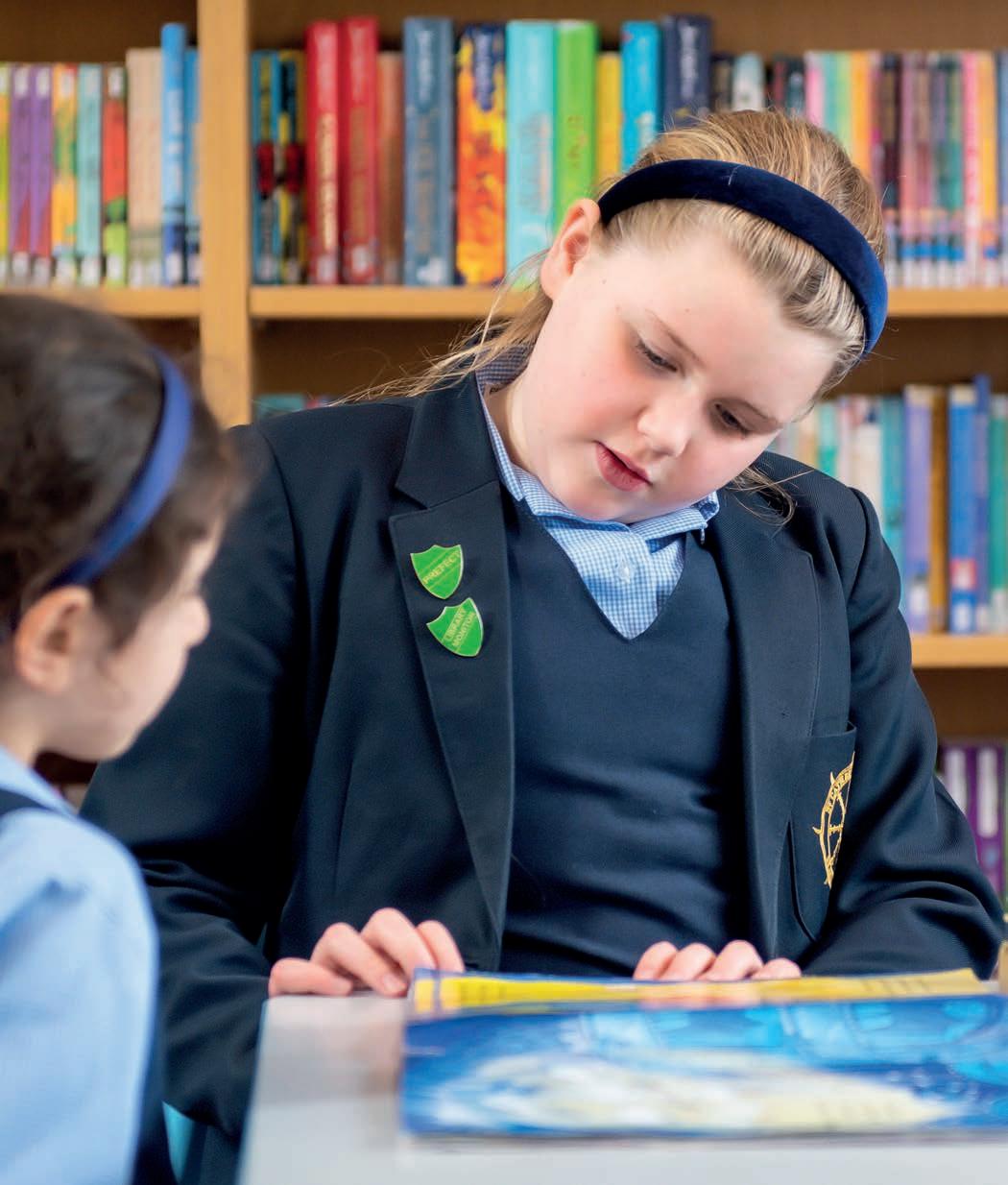




















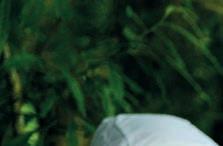






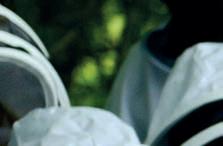





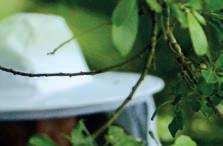




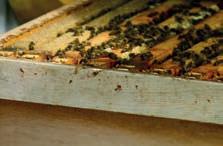

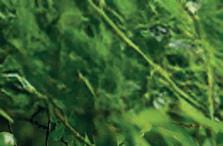
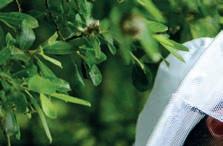
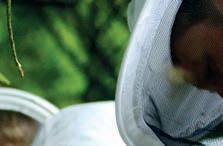
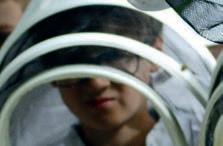
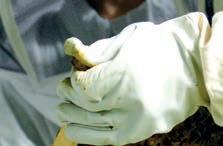

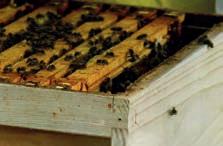



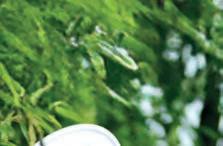

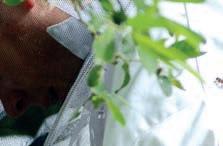














From
observing
the
seasons to growing and tending plants, outdoor crafts and creating wildlife habitats,
school
gardens
are a place for learning, contemplation and fun. We speak to three schools about how they manage garden time
Set within 23 acres of Su olk countryside, Framlingham College Prep School o ers its pupils plenty of freedom to play, explore and learn. The ‘hands, heart, head’ learning approach here recognises how children learn best. Connections are made first through their hands, via play and exploration. Then they make an emotional connection with their discoveries. After that, they use their heads to think creatively and critically. This approach enables children to explore independently and start to make links in their learning.
Throughout the academic year, the curriculum supports learning outside – no matter what subject or age group. From the Year 6 to 8 sessions learning camping skills and woodland crafts in Forest School to biology lessons at the College beehives for Year 4 and 5 pupils. Meanwhile, Early Years children begin their outdoor learning journey with insect counts and pond dipping. Framlingham College Prep believes that giving children the opportunity to appreciate nature helps them to
grow in confidence and independence and also develop a greater respect and understanding of the world around us.
The school’s Junior Duke programme – described as ‘rather like a mini DofE’ –o ers opportunities to develop di erent skills and nurture essential qualities. Skills learnt range from bushcraft and den building to gardening and mapping. Sustainability is a critical element and, since 2021, Framlingham Prep pupils have planted 420 trees across the school grounds in partnership with the Woodland Trust, also creating hedgerows to support habitats for native wildlife – these then become study zones.
The popular gardening club works to support insect and bee populations, and each year young gardeners take a selection of their green-fingered creations to the Su olk Show, last year winning Highly Commended in the school garden display class. The benefits of gardening and outdoor learning are critical for this age group, says the school, and range from improved motor skills to physical and mental health.
For some young children, outdoor learning can be daunting at first, but most pupils show
curiosity rather than fear. Being outside brings a feeling of freedom – to ask questions and speak openly without anxiety. Activities such as tending beehives or campfire lighting may bring some apprehension initially, but the school’s approach fosters open-mindedness and risk awareness while embedding valuable academic and life skills.
The school garden at St Chrisopher’s The Hall is a happy and tranquil space created by pupils themselves as part of a lunchtime gardening club and in celebration of the Beckenham, south London school’s 130th anniversary. It’s a small but much-loved corner of the school, nurtured by children who have taken real ownership of its upkeep. Over time, it has become not only a place of planting but a calm retreat where pupils go to sit and read, reflect or simply enjoy nature during class breaks. While the school has access to many beautiful outdoor spaces nearby for nature walks, play and exploration, the garden is unique as a space designed by and for the children learning here.
St Christopher’s views outdoor time as o ering a valuable place to decompress, and the garden is especially valuable for pupils with SEN and those younger children who sometimes become overwhelmed in classroom settings. The sensory experiences of gardening – touching earth, smelling herbs, hearing birdsong – create a calming and grounded environment and pupils report that it helps them feel more focused and relaxed for the rest of the day.
The school’s most exciting recent project has been lavender planting across the garden. The children are learning how to care for and nurture the plants throughout the seasons, with the purpose of harvesting the lavender beds to create handmade lavender bags. These will then be sold at the school’s summer fair as part of an enterprise project, helping children learn about sustainability, small business skills and the full growing cycle from seedling to sale. It’s a practical, purposeful project that has sparked enormous enthusiasm.
Pupils are generally very positive about gardening – especially when they see real results, such as a flower they planted themselves start to bloom. For new gardeners, there may be initial reservations about worms and mud, but those vanish quickly once they get stuck in and start to have fun. The gardening club helps to model curiosity and resilience, and children support each other in overcoming initial hesitation or squeamishness.
St Christopher’s The Hall school garden has become a natural extension of the curriculum. From understanding plant biology and lifecycles in science to measurement and data collection in maths and storytelling inspired by nature for English, the outdoor setting provides
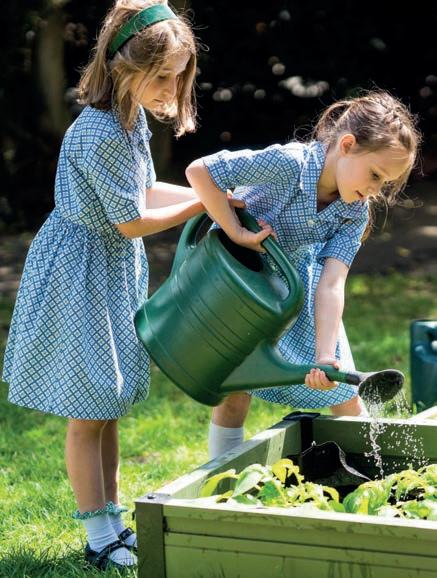
ABOVE

BELOW
learning opportunities. In particular, the lavender project ties into both science and enterprise learning, encouraging children to think critically about where things come from, how they grow, and the environmental impact of choices we make every day.
Set within 25 acres of green space in Cobham, Surrey, Feltonfleet has an expansive campus. This enables learning to spill naturally from classroom into the great outdoors.
Outdoor education is woven into the fabric of daily life. From sowing seeds in gardening club to harvesting vegetables in Forest School, pupils learn how to nurture plants and also care for themselves, each another and the world around. “The natural environment is a living classroom,” says Forest School teacher Anne Mossop. “It sparks creativity, builds resilience and cultivates a deep respect for nature.”
Weekly Forest School sessions take place for Pre-Prep pupils in all seasons. Pupils learn how to climb trees, cook over an open fire and develop craft skills. A recent Year 2 session saw pupils using the Japanese art of Hapa Zome, or leaf bashing, to create colourful mirrored prints. The conversations that followed about symmetry and colour change gave a snapshot of how outdoor learning helps to build core academic understanding.
Gardening club o ers a deeply sensory experience. Pupils dig, plant, water, and wait. In doing so, they develop patience, responsibility and persistence. Feltonfleet finds that tending to plants encourages empathy and collaboration – and there’s the joy of tasting a tomato or strawberry they’ve helped grow at the end of it all.
All pupils benefit from daily access to outdoor space, with the majority of classrooms opening directly onto gardens and play areas. Regular engagement with the outdoors supports gross and fine motor skills development, nurtures confidence, and encourages independence. Whether it’s threading cereal hoops for bird feeders or creating homes for woodland creatures, younger pupils learn through purposeful play. For older pupils, outdoor time o ers valuable space to unwind and connect, be it in playing energetic ball games or tackling adventure play areas.
The wider school site is designed to provide outdoor variety, with quiet reading gardens, treehouse hideaways, wildlife ponds and woodland trails among the areas to be explored and enjoyed. This variety means every child can find their favourite spaces and spend valuable time there in activity or quiet reflection. In 2024, Feltonfleet’s ‘Roots for Tomorrow’ tree restoration project was launched to protect and regenerate the school’s green boundary, strengthen biodiversity, and deepen pupils’ environmental awareness. It reflects the school’s belief in sustainability and responsibility – not just for today’s learners, but for future generations.



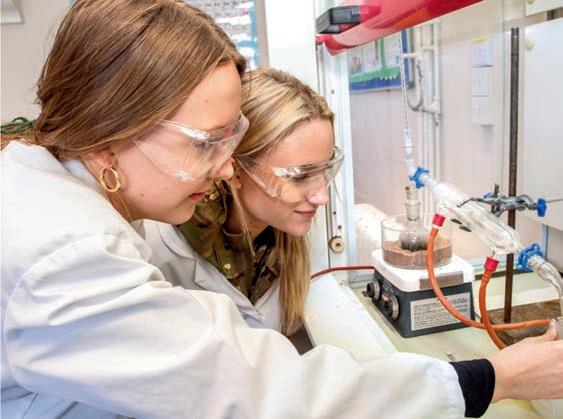


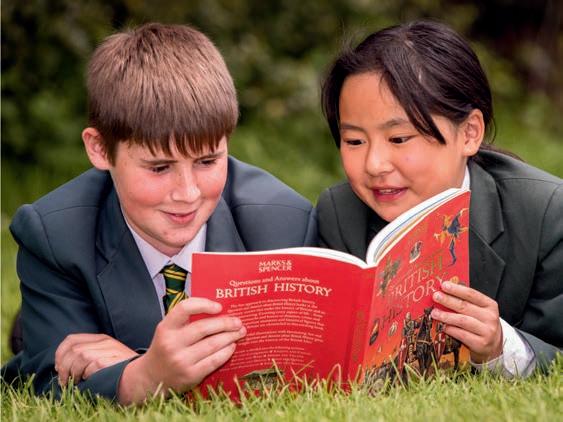


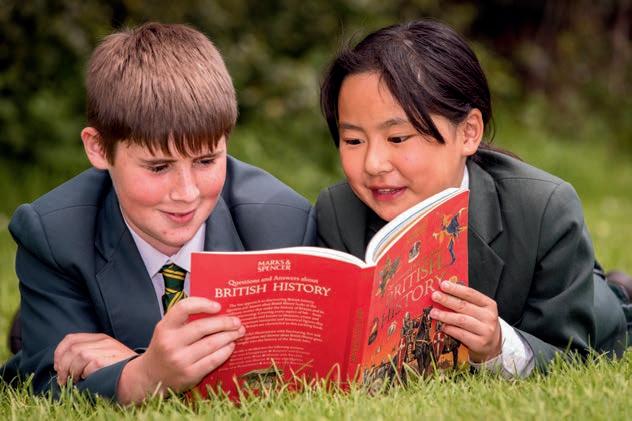




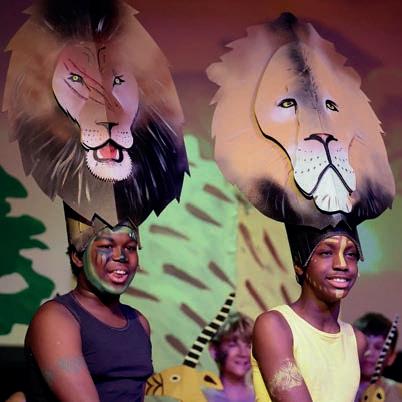
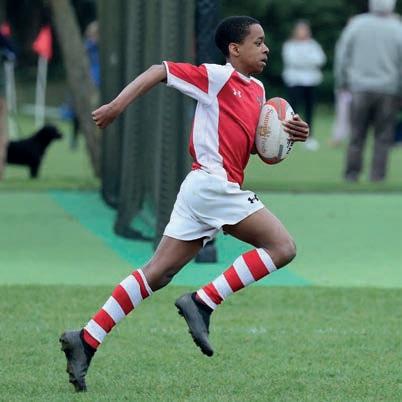

Boys enjoy an education where their ambition is granted the opportunity to succeed, and personal transformation shapes every experience.
Academic excellence is a hallmark of Summer Fields, yet the true distinction lies in its unwavering commitment to character.
Boys enjoy the freedom to discover passions, cultivate empathy, and grow with purpose, under the regular guidance of their pastoral tutors.
70 acres of parkland, minutes from Oxford city centre, offer them the space to thrive, in every sense.
Summer Fields – Where Excellence Finds Its Voice Day and boarding Prep school, for boys aged 4 to 13
Caroline Jordan of Headington Rye in Oxford considers how best to support pupils to get the best out of their future
When did you know what you wanted to be when you grew up? Did you set your sights on Oxbridge or the Ivy League at an early age? And, more importantly, how many times did that change before you eventually settled down to your current role?
The number of children who fix on a destination early in their educational journey and stick to that path without veering o in a di erent direction is very small. With the exception of truly vocational callings such as medicine, that number is likely to drop even more as the job market changes dramatically in response to new technologies and the changing world. Many of those starting school now will end up taking jobs which don’t yet exist.
How, then, do we support them as educators? At Headington Rye Oxford, this starts early. We o er a very broad curriculum, with pupils studying a wide number of di erent subjects before starting to specialise as they select their GCSEs, with currently 28 subjects to choose from. We encourage them to consider balance and to leave their options open for further study, leaving them well qualified across a range of di erent disciplines and giving them the ability to change their minds.
At Sixth Form, most students start to have a clearer idea of what they want to do. It’s important to support those who have a very clear path –for example, we provide specialist programmes for those considering Oxbridge, Law, Architecture and Medicine applications – and also those who are less clear about what they want to do.
Our pupils will meet representatives from di erent universities at our annual Higher Education evening and during special visits and talks, and also individuals working in a variety of di erent careers. We welcome back former students who
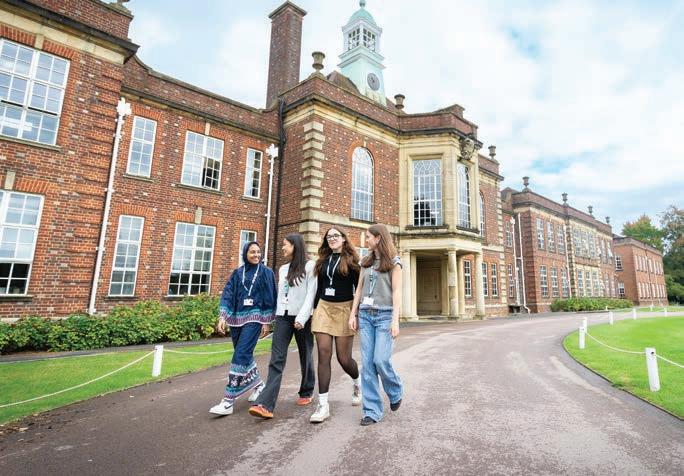
share their educational and careers journeys, providing opportunities for work experience and networking as well as introducing them to the di erent possibilities. We get to know our pupils really well, so we can give them informed advice about the options which would suit them best. Alongside this, our tutors provide expert guidance for UCAS applications, oneto-one advice and support, interview practice and preparation for university admissions tests where appropriate.
An increasing interest in US universities has resulted in the development of our new specialised programme to support those who would like to apply. We provide them with advice on how to select courses and institutions and on which application route to select. We also o er indepth individualised advice


on athlete scholar applications from our Performance Director, a route which has seen many of our exceptional rowers leaving Headington Rye to continue rowing ‘Crew’ in the Ivy League universities.


This doesn’t mean that the girls leaving Headington Rye to embark on the study of, for example, Liberal Arts at Harvard, History at Oxford or Cambridge, or Law at King’s College London, are tied to following that path forever. The academic rigour of our courses, along with the critical and creative thinking and academic skills explicitly taught during their time at school, will stand them in good stead whether they are committed to one career or decide to diverge, to continue their studies or to explore new challenges in other disciplines. Whatever their futures, our job is to make sure they are ready.


SHERBORNE BOYS
sherborneboys.group
SHERBORNE PREP
sherborneprep.group



SHERBORNE GIRLS
sherbornegirls.group
HANFORD PREP
hanfordprep.group

BOYS AND GIRLS AGED 3-18 FULL BOARDING AND DAY


SHORT COURSES AVAILABLE





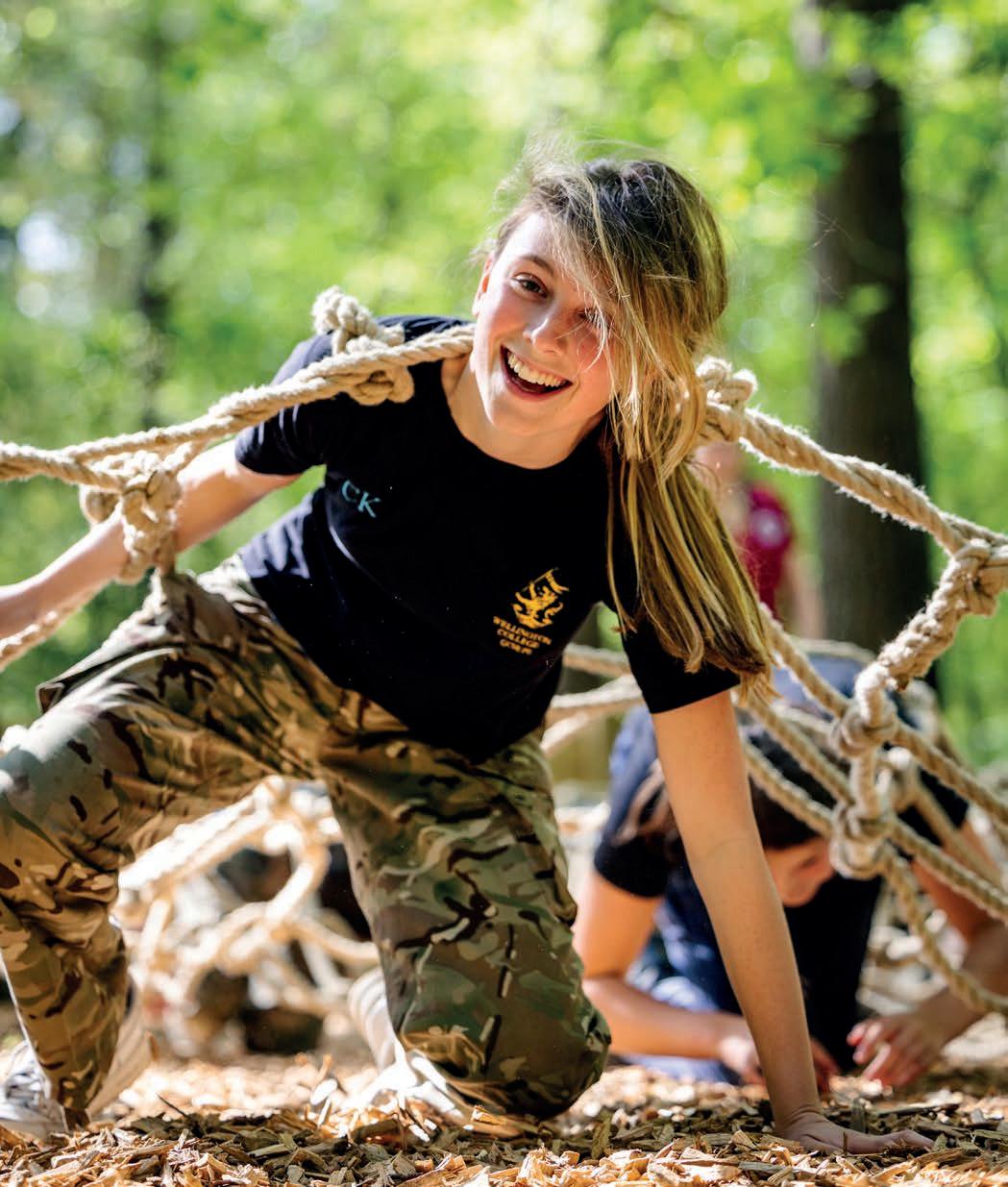
CHALLENGE ACCEPTED
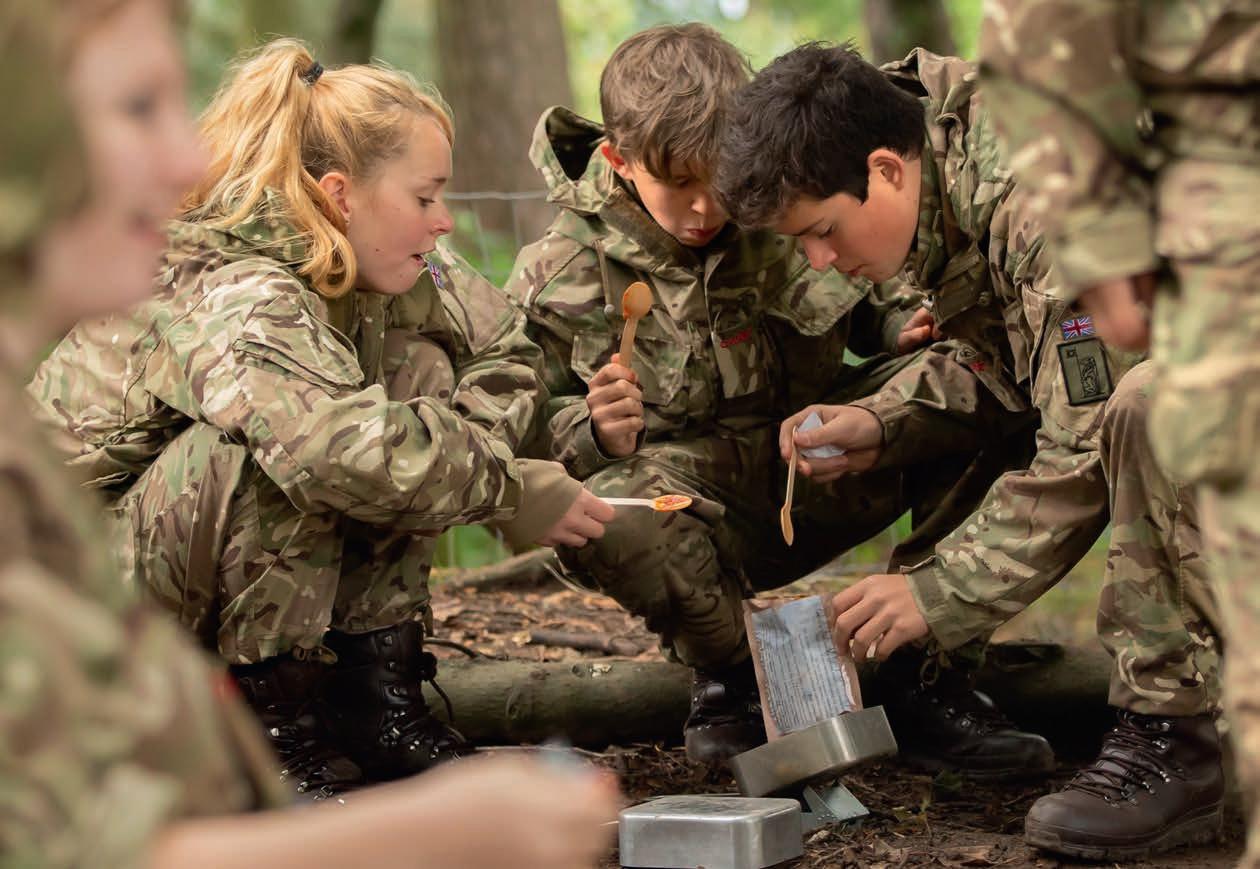
Extracurricular elements of school life – including CCF and DofE –o er adventure but also deliver skills and qualities that are invaluable for future life and career. We ask three schools how they develop young people through a culture of service

At Malvern College, service is not simply an extracurricular o ering but a defining element of the educational ethos. As a full boarding school and home-away-from-home for pupils aged 13 to 18, the Worcestershire school works to create a supportive environment where young people can explore, commit to, and grow through service at a pivotal stage in their development. The diverse community includes pupils from around the world – many are from services families – and this global perspective enriches community engagement and adds depth and resonance to programmes.
From the moment they reach Remove (Year 10), every Malvern pupil participates in either the Duke of Edinburgh’s Award (DofE) or the Combined Cadet Force (CCF), with many choosing both to get a breadth of challenges and experiences. The DofE programme, led by Head of Outdoor Pursuits Jay Watts, includes both Silver and Gold awards and o ers opportunities for physical challenge, community volunteering and expedition-based learning.
The CCF at Malvern provides a structured, skills-based environment
encompassing the Army, RAF and Royal Marines sections. This programme supports character development through leadership tasks, outdoor training and teamwork. And it’s exciting, too: recent introductions include flight simulator technology for RAF cadets, laser rifle training on the neighbouring Nine Acres grounds and a Bronze Award at the 2025 Cambrian Patrol. For two consecutive years, a Malvern CCF pupil has also held the prestigious title of Lord Lieutenant of Worcestershire’s cadet.
Malvern College says these experiences o er lasting value. Pupils build confidence, develop initiative and learn to lead and support one another – qualities that serve them well in further education and future careers and help them stand out from other applicants. Parents frequently speak to the transformative impact of these service opportunities, recognising their role in shaping mature, capable young adults.
Beyond DofE and CCF, Malvern’s broader culture of service is embedded in weekly routines. Each Wednesday afternoon is dedicated to partnerships and volunteering, all of which are entirely pupil led. College pupils assist in local schools, lead digital safety initiatives and take music and performance into care homes. They
also engage in longstanding international partnerships, such as the OSCAR Foundation in Mumbai and sustainable farming initiatives in Peru.
Charity work is a vibrant part of house life, with fundraising events supporting causes ranging from Cancer Research UK and Mind to the local Malvern Hills Foodbank. These elements of service and giving back often stem from personal connections. Recognising the scope of this work, the school is currently appointing a Head of Community Partnerships and Service to coordinate and further develop opportunities.
At Wellington, hands-on service is central to its Global Citizenship character development programme. Every Wednesday afternoon, all students take part in community-based activities – from CCF and DofE to supporting the work of care homes. These projects are led by a dedicated team of specialist teachers and embedded into the timetable.
Every Fourth Form pupil participates in CCF via weekly activities centred around the Salamanca Shield, an interhouse competition based on military and adventurous training skills and culminating in a five-day training camp. Many Fifth and Sixth Form pupils then continue on with CCF. Large numbers also participate in DofE – right up to Gold in the Lower Sixth. This year, 196 students are taking DofE Bronze in Third Form, 24 are doing Silver in Fourth Form and 18 are completing Gold in Lower Sixth.
“Our inbuilt service culture develops empathy, leadership and a sense of global responsibility,” says Head of Global Citizenship and CAS Coordinator Rebecca Parks. “Many alumni go on to take up volunteering roles as a result of their experiences.” Wellington is mindful of University of Northampton research indicating the significant positive impact of CCF on young people – both in improving school performance and in boosting future career prospects.
“ We listen to pupil voices and empower them to take action on causes close to their hearts”
Wellington’s history – it was founded as a school for the orphaned sons of army o cers – means the spirit of service is embedded in its culture. Both parents and the school see huge value in helping young people to build strengths through service. Community initiatives and service leadership roles also provide an opportunity to build networking skills, uncover interests and skills and get a taste of di erent roles and types of work. Students regularly draw on these real-world experiences when applying for work experience, university places and first jobs. Being active through service also develops crucial transferable skills – including resilience, adaptability, leadership and communicating with people from di erent backgrounds.
The school’s long-running partnership with local LAN special needs school Carwarden House has built both friendships and a vibrant activities programme, with pupils fundraising to deliver treats such as a Thorpe Park trip. Many such community initiatives are pupil led. For instance, there was a recent toy drive to support Afghan refugees. “We listen to pupil voices and empower them to take action on causes close to their hearts,” says Rebecca Parks. “This includes the Cerebral Palsy Trust, which was established by pupil David Loftus and his school peers. Pupil members recently organised a Christmas Inspire Day to celebrate the enormous progress they have made.”
Wellington’s Peace and Conflict Institute supports the charity Care4Calais and 27 pupils recently travelled to France to spend two days supporting their work in refugee camps. Other initiatives include pupils and sta teaching Latin to students at nearby Edgebarrow School, and outdoor activity sessions for local primary school children.
At Oakham School, service is embedded into the school calendar, with extracurricular activities included as part of the weekly timetable, plus weekends of activity, residentials and expeditions. With these regular opportunities beyond the academic sphere, Oakham aims to deliver the holistic education that prepares pupils for life beyond school. “Our service options of DofE, CCF, and Voluntary Action cultivate not just well-rounded students, but compassionate and capable young people prepared to serve and lead in a complex world,” says Oakham Director of Adventure, Matty Powell, The Rutland school’s Connected Curriculum weaves together academic,
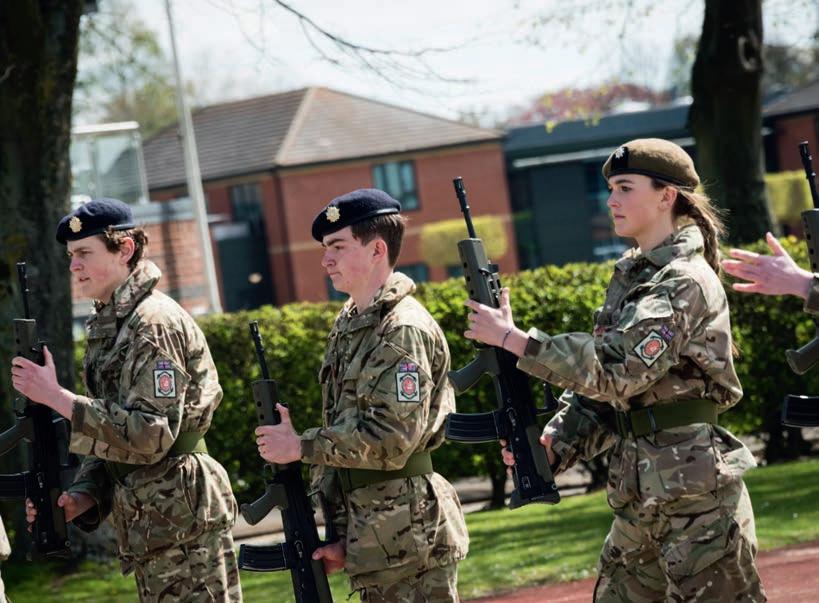
“These moments of challenge help our pupils grow personally and face obstacles with greater confidence”
pastoral and co-curricular experiences, with pupils actively encouraged to develop five essential life skills – Communication, Social, Self-management, Research, and Thinking. Service options o er the perfect place to develop all five. A team supports Matty Powell in delivering the service and adventurous learning programme, with qualified coordinators across DofE, CCF and VA, plus a specialist Adventurous Learning Co-ordinator.
Pupils in Years 7 and 8 are introduced early to the values and benefits of service and adventure through charity initiatives such as the Harvest Challenge, bake sales, charity bike ride and annual adventure camps. In Year 9, all pupils have a formal introduction to CCF, DofE and VA via a carousel of activities and experiences across the three terms. At the end of the year, they also experience an expedition, which they can count as their Bronze DofE Expedition.
From Year 10, pupils can choose whether to progress through the Silver and Gold Awards – with canoeing, cycling, and sailing, in addition to walking. They also have the flexibility to continue with CCF and VA by choosing all three service options during their weekly Activities sessions. This flexible pathway continues in Year 12. Even if pupils have never done DofE at Silver or Bronze levels, they can choose to complete their Gold DofE during this year, with an option to complete a CCF-organised expedition to Norway.
At each stage of the DofE awards journey, pupils are mentored by trained sta and older pupils who develop their leadership skills through its Young Leaders programme. CCF is an equally popular
option from Year 10 onwards, with pupils participating in its programme of training and adventure via real-world challenges and unforgettable experiences – from fieldcraft exercises to annual camps.
Voluntary Action has seen a big growth in popularity, with pupils participating in an invigorated programme of volunteering. “We lead initiatives that nurture a culture of service, teamwork and emotional intelligence. Our projects range from intergenerational storytelling with dementia patients to sustainability e orts like uniform recycling,” says Head of Voluntary Action Monica Fernandez.
The Oakham School Foundation Project adds an entrepreneurial edge to service culture. Every Sixth Former is challenged to pitch, fundraise, and deliver projects that make a tangible di erence to school life, working in connection with the Development O ce. From installing solar lighting and restoring the local canal path to creating a time capsule legacy, the winning teams develop enterprise, collaboration and leadership skills to enrich school life and leave a legacy.
Oakham sees the encouragement of service activities as bringing a wide range of benefits. “These moments of challenge help our pupils grow personally and face obstacles with greater confidence,” says Matty Powell. “Leadership opportunities also play a crucial role in strengthening communication skills and self-assurance.” Parent feedback on the many service elements of school life is overwhelmingly positive, he adds. “Parents frequently highlight the character-building aspects of these programmes, especially their impact on resilience, leadership and responsibility.”
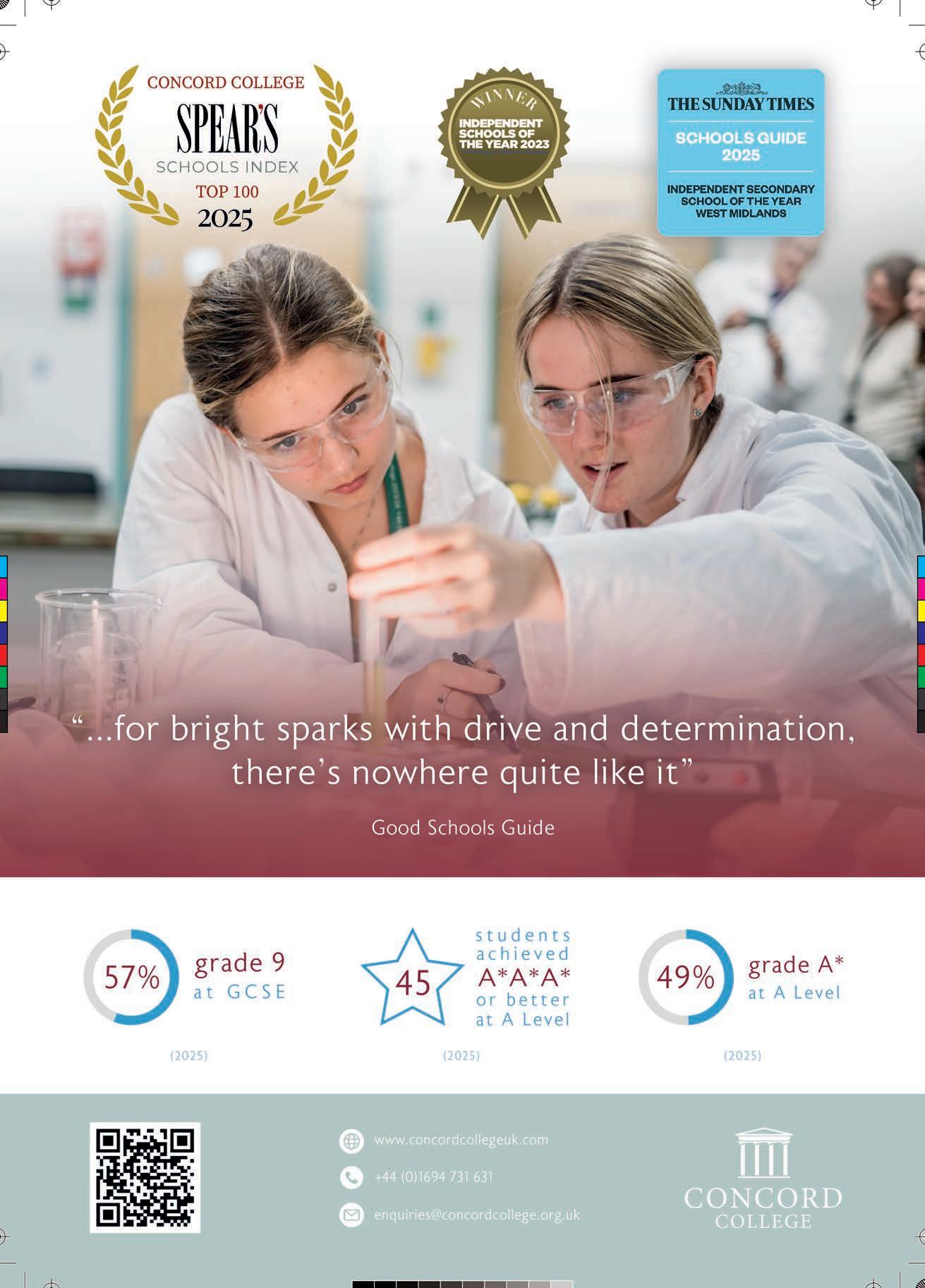


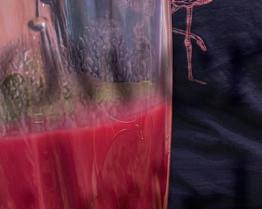



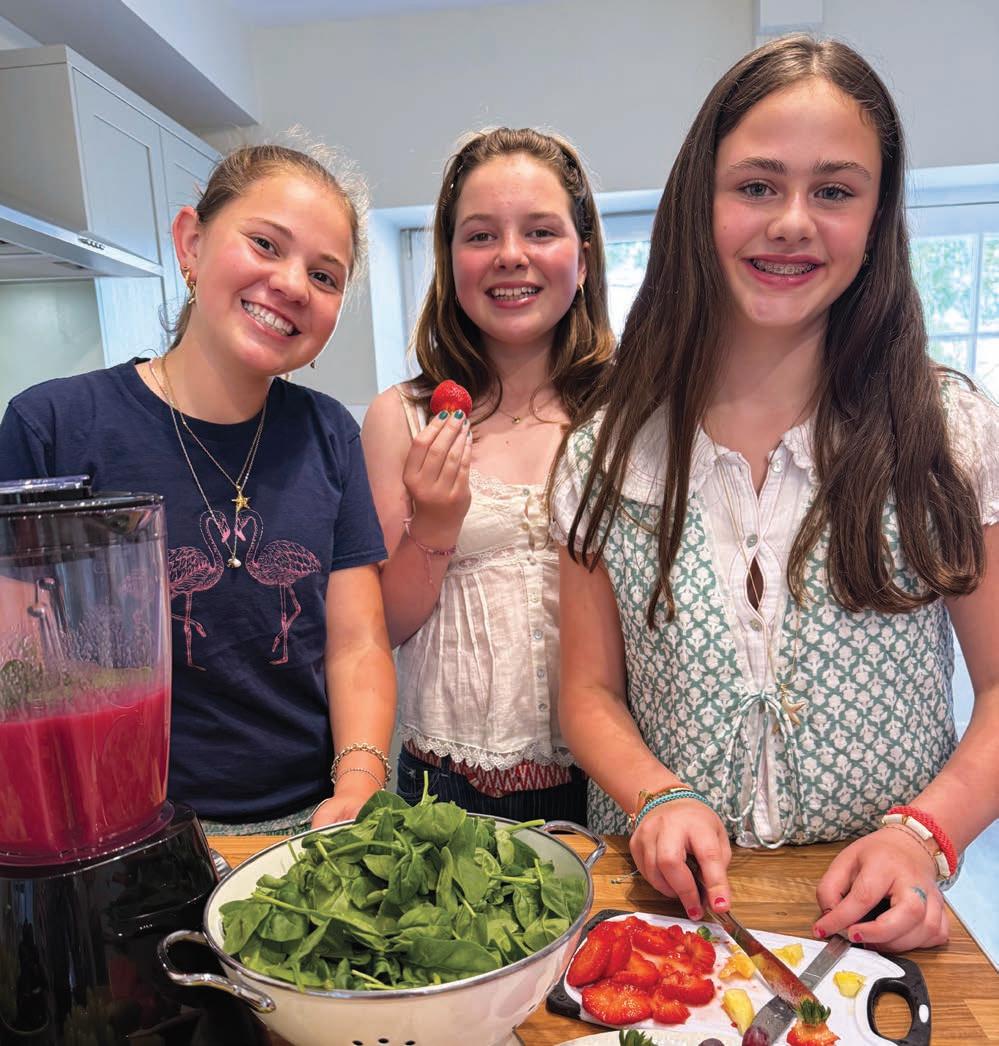
Find out why we o er the best possible experience and outcomes for young women, and why girls seek to join us at 11+, 13+ and Sixth Form.
Tudor Hall is celebrating 175 years in 2025-26. In our corner of the Cotswolds girls are safe and secure – in every sense of the words – to be themselves and nd their place in the world.
As a British boarding school where the majority of our girls are UK-based and are full boarders (170+ full boarders) we are the perfect choice for international families.
Tudor Hall is attending GSA (Girls’ Schools Association) UK Girls’ Schools Expo Hong Kong, at the Shangri-La Hotel, Kowloon, on 25th October 2025.




Robert Milne, Master of Dulwich College, gives timely pointers on managing the complexities of the school admissions process
With admissions’ season underway, families and young people are getting to know schools and preparing for visits, tests and interviews. Every school knows how emotional this experience can be and works really hard to make it as positive as possible for prospective pupils and their families.
The most important point to keep in mind is that these admissions experiences are not about measuring someone’s value or talent, but everyone working together to feel confident that a young person will be happy and thrive at school over the coming years. It is made harder because decisions are made at a specific age for each child and there is no failsafe way to truly know how they may develop in the coming years. Time and again, I am amazed, in a good way, by the strides a young person makes over time, given the right environment. By this I mean, a place where they feel
“This is not about measuring talent, but everyone working together to feel confident a young person will be happy and thrive”


they truly belong, are known, welltaught, encouraged and looked after. However, there are some key points to keep in mind during the admissions process and, regardless of the final outcomes, I hope that they prove useful.
• While it is hard to avoid looking at a school through the lens of your child’s age now, try to consider how a school might suit them in the years ahead. School years may well be the most concentrated period of positive development in their lives. Their needs alter, just like their character, year to year.
• Get beyond the publicity material, ask your questions and really listen to what senior leaders and teachers are saying. Connected to this point is the importance of shared values – what schools stand for, how they act, what they celebrate. If school qualities and values align with your family’s, that is a
good way to start a positive relationship. Also think carefully about how you are made to feel during the process. Above all do you feel welcomed, valued and heard?
• Speak to other families with pupils in the school. Of course, everyone’s views are shaped by personal experience, so getting a range of thoughts, often from those who may not naturally wish to ‘post’ but who you believe will o er a measured and clear perspective, is advised. Some schools o er a chance to chat with current families – I strongly recommend this opportunity if it arises.

• Finally, listen to current pupils, and – if the chance arises – those who have been through the school. In my experience, pupils are disarmingly honest in what they say.
For further information about Boarding at Dulwich College please visit dulwich.org.uk
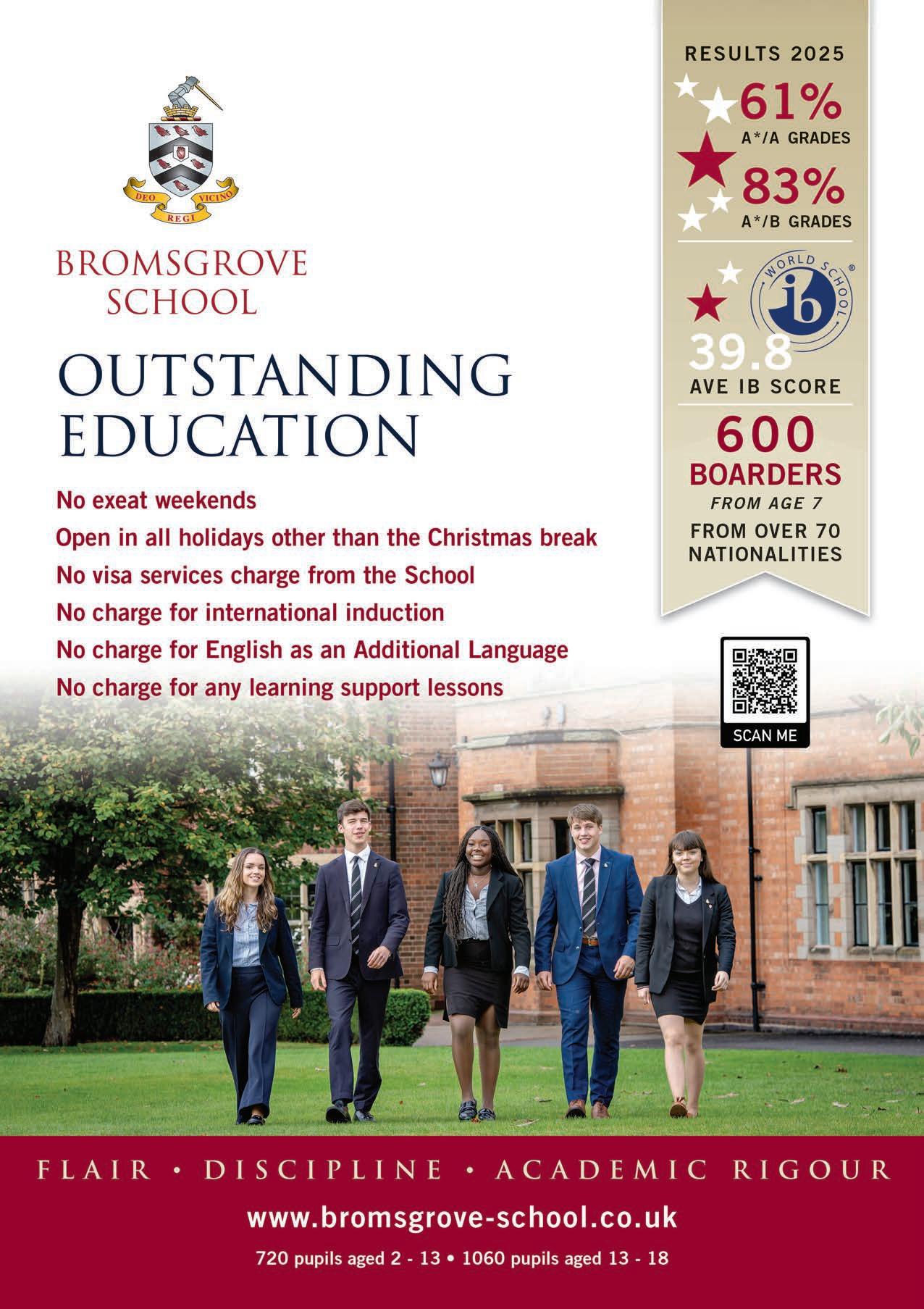
Orlagh Hotchkiss of Concord College on the benefits of outdoor education embedded in the curriculum.
Outdoor Education has been a thriving aspect of the student curriculum at Concord College for the last 20 years. In a highly academic environment, students welcome the opportunity to challenge themselves outside of the classroom and the regular trips we take into nature also help to provide perspective and support positive mental wellbeing.
It is fundamentally important to help young people relate to each other and to the environment in a positive way. Young people need opportunities to risk getting things wrong, to be challenged to do things they genuinely don’t believe are possible for them and to do so in a strongly supportive environment.
Outdoor learning provides students with the opportunity to find something truly di cult, to give and receive help from friends and ultimately to, as our head of outdoor education put it, “realise that they have achieved something that they initially thought was beyond them”. They learn
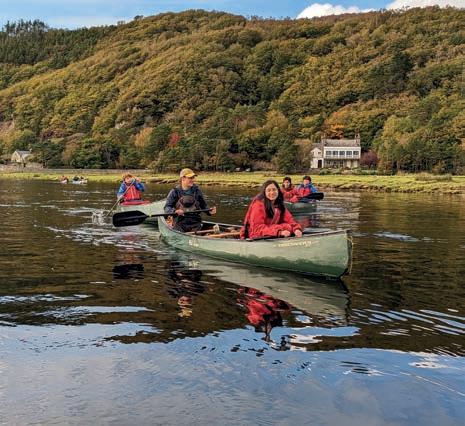
“Young people need opportunities to risk getting things wrong and to do so in a strongly supportive environment”
the benefits of teamwork, perseverance, and belief in yourself and others. We see improved camaraderie and self-worth. We watch as they learn to face new situations with confidence. The lateral thinking skills they develop can be applied to their academic studies and to their future lives.
Our programme involves every student right from day one. The school induction week features the challenge of our very own high-ropes course, an ice breaker in making friends but also a key moment to help new students warm to the idea of being challenged physically and mentally in the outdoors.
Every year group has a residential or outdoor pursuits experience, visiting beautiful environments in Wales, and Derbyshire, where they engage in activities such as rock climbing, mountain biking, canoeing and gorge walking. Our Lower School pupils (years 9-11) benefit from regular outdoor-pursuit activities as part of their core curriculum and take advantage of the beautiful local Shropshire Hills. Activities include rock climbing, mountain biking, hill walking, canoeing and high ropes.
Another element is the Duke of Edinburgh’s Award (DofE), which provides an excellent framework for those wanting to take things further, but we are careful to ensure that students who can’t commit to all of the elements of the DofE are still exposed to the excitement and challenge of outdoor pursuits.
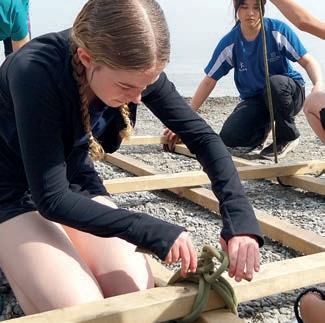
Whether the pinnacle of their achievement is a Gold DofE or navigating our local hills to arrive back for an ice cream, every student makes progress and achieves something to be proud of. One student recently recalled proudly the change in his strength, as he described the transformation from being someone who had to be helped up the hill by his team in Form 4 to being the one leading and encouraging others on a trip to Anglesey.
These experiences help our students to learn valuable skills and life lessons in an environment far removed from the classroom. Exploring problems in a practical capacity and overcoming challenges develops teamwork and refines communication skills. More than that, the experiences provide lasting memories, stories to share and a chance to view classmates in an entirely di erent light.

ORLAGH HOTCHKISS Assistant Principal (Co-curricular, outreach & inclusion) Concord College
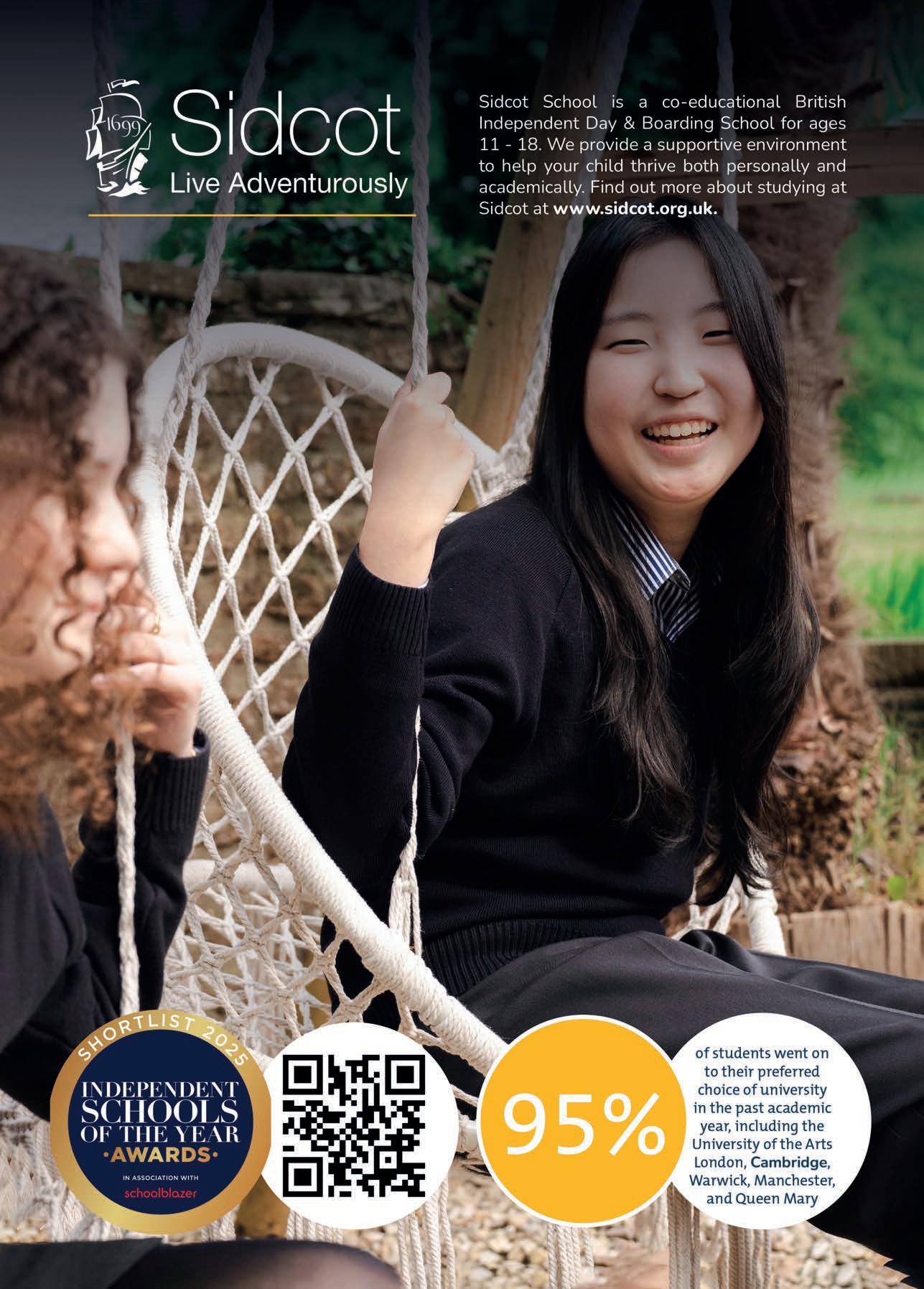
The Headmistress of Marymount London on how the IB helps to shape students academically and develop them as well-rounded young adults
With SATS, GCSEs, A levels, MYP, IB, it sometimes feels like education is just one long string of acronyms. And with every new option comes a fresh wave of questions. What’s the di erence? Which one is right for me? How will any of this actually help me in the future? It can feel overwhelming. Apprenticeship, university, college – there are so many di erent doors to choose from. And of course, behind every door is a di erent pathway, a di erent workload, and a di erent outcome. The big issue that lingers for students (and for parents, too) is: what is our best choice?
If you want the shortest answer: there isn’t a one-size-fits-all path. But if you want a choice that is recognised globally, admired by universities, and respected for both its academic depth and its ability to form wellrounded young adults, then you’re probably looking at the IB Diploma Programme.
“Our students are learning how to think critically, act compassionately, and engage with the world”
The International Baccalaureate, often called the IB, is more than just a qualification. It’s a philosophy of education that values breadth as much as depth. While A levels, for example, ask students to specialise and narrow down, the IB keeps the doors open. Students study six subjects, ranging from languages and sciences to mathematics and the arts. Subjects sit alongside three core elements: Theory of Knowledge (a course in critical thinking), the Extended

Essay (a piece of independent research), and CAS (Creativity, Activity, Service – ensuring students develop beyond the classroom).
This mix is what makes the IB so special. It’s rigorous, yes, but it’s also holistic. It doesn’t just prepare students to pass exams but to think, to question, to collaborate, to understand the bigger picture, and to explore the world around them. That’s why it’s sometimes referred to as a gold standard of education. From Oxbridge to the Ivy League, admissions o cers respect the IB because it signals that a student hasn’t just passed exams but has developed independence, resilience and a genuine love of learning.
At Marymount, we’re proud to be the only all-girls, IB-only school in the UK. For us, the IB isn’t just an option, it’s our entire focus. And that focus delivers results. In 2025, our students achieved


a 100% pass rate with an average score of 37 points, well above the global average of 31. These aren’t just numbers – they represent real young women achieving their potential and ready to step into the next stage of life with confidence.


But beyond the grades, we believe what sets our IB journey apart is the experience. Our students aren’t here simply preparing for exams they are learning how to think critically, act compassionately, and engage with the world around them. They leave not only with a diploma, but with the mindset and skills to thrive in any university, career, or community they choose to join. So, if you’ve ever wondered what the IB is and why it matters here’s the short version: it’s an education that challenges, supports and transforms you. And here at Marymount, it’s what we do best.
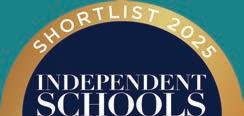

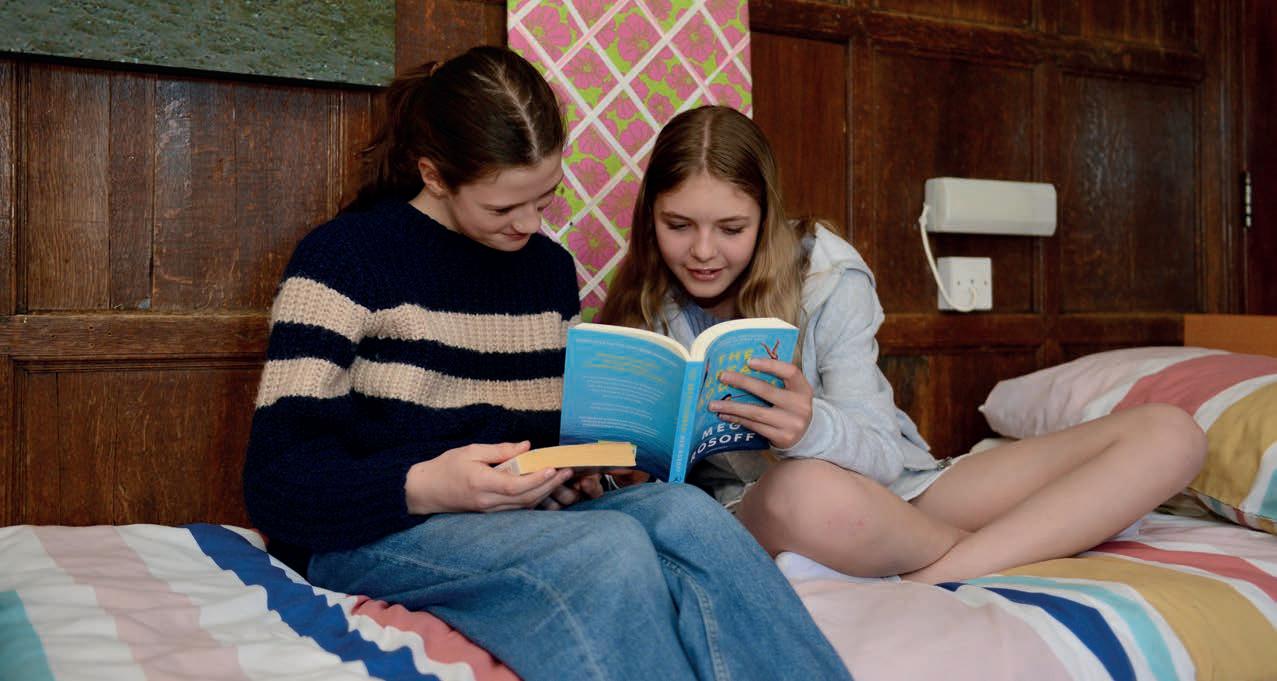


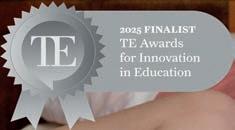
BOARDING FROM AGE 7 TO 18 FULL, WEEKLY OR FLEXI OPTIONS AVAILABLE A WELCOMING HOME-FROMHOME FOR PUPILS TO GROW, ASPIRE AND ACHIEVE WE OFFER A SPRINGBOARD FOR INDEPENDENCE, FRIENDSHIP AND OPPORTUNITY
Boarding at Framlingham offers stability, continuity, and a welcoming home away-fromhome environment . We understand the unique challenges of being away from home life and provide tailored flexibility to suit your needs. From age 7 (Year 3) to 18 (Year 13) , our boarding provision provides a vibrant, supportive environment where pupils can grow, thrive, achieve and aspire.
START YOUR CHILD’S JOURNEY TODAY
Contact our Admissions team to arrange an initial online meeting. Visit framlinghamcollege.co.uk, contact admissions@framlinghamcollege.co.uk or call +44 (0) 1728 727217.
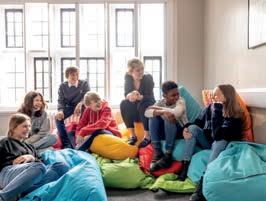
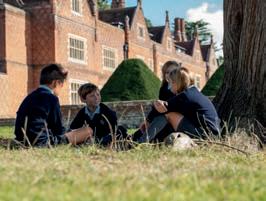
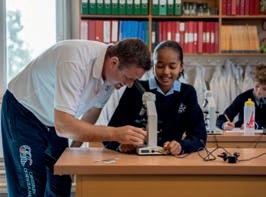
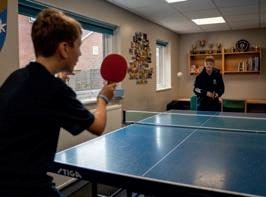

The Director of Sport at St George's Ascot on its enhanced swimming programme and increased provision in traditionally 'male' games
Swimming is one of the most demanding sports a young person can pursue. It requires precision, power, time management and grit. That’s why, this year, we’ve taken our swimming provision to the next level.
Our Performance Swimming Programme o ers talented young swimmers a highperformance coaching environment while ensuring they continue to thrive in the classroom. This September we will welcome the first group of girls onto our elite swim programme with training sessions integrated into the school day and throughout the week, enabling the girls to strike a good balance between academic focus and athletic ambition
I am excited to welcome Nicky Matthews as Head Coach for our Performance Swimming Programme. Nicky has extensive experience developing young swimmers to a national level – her approach is purposeful and professional, but also incredibly supportive. She coaches with drive, challenging and championing young athletes to take their next steps with confidence.
In parallel with our swimming development, we’ve also expanded opportunities in cricket and football, giving girls a chance to explore sports they may not have considered their own. Cricket is now a key part of our summer and winter calendars, following the installation of our indoor hardball cricket nets last May. We are
“A favourite part of my job is seeing a girl realise what she is capable of – these are the moments that build character, not just athleticism”
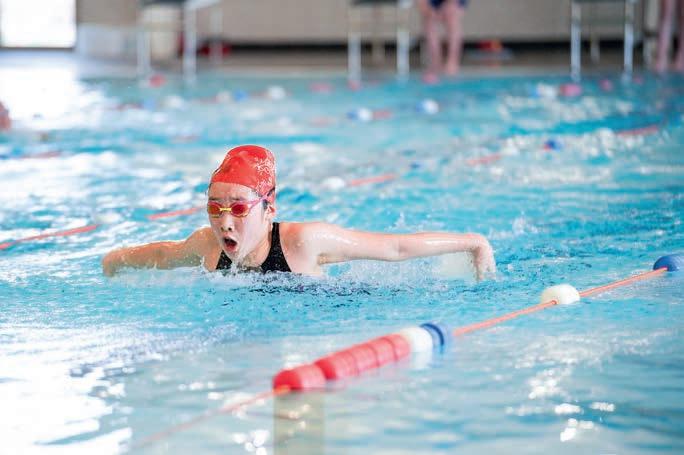
supported by a coaching partnership with Royal Ascot Cricket Club.
Our girls are thriving in matches, developing technical skills, tactical understanding and loving the camaraderie that cricket brings. We have embedded specialist coaching, competitive fixtures and a pathway for those who want to pursue the game seriously. The same is true for football, which has seen a sharp rise in interest and talent. With growing national visibility in the women’s game, it felt essential to give St George’s girls the chance to be part of that movement.
While our Performance Swimming Programme, football and cricket may be the latest additions to feature in our rich and diverse sports programme, we are continually evolving our provision to ensure every girl finds her space to shine. From netball to tennis, dance to badminton, athletics and beyond, our girls have the chance to enjoy, lead and inspire.
A favourite part of my job is seeing a girl realise what she is capable of. Sometimes that moment happens in a fixture, sometimes it’s in a training session, sometimes it’s just the quiet pride of
knowing she kept going when something felt hard. These are the moments that build character, not just athleticism.
I have experienced time and time again that when girls are given the opportunity to lead, to fail safely and try again, they discover they are capable of more than they ever imagined – and that is what sport in schools should be about. I want every girl to leave us knowing they can stay in sport in whatever form they choose, whether that is through competition, coaching, volunteering or simply for personal enjoyment.
I am so proud to be part of a school that is investing in the future, and doing so with purpose.

SOPHIE
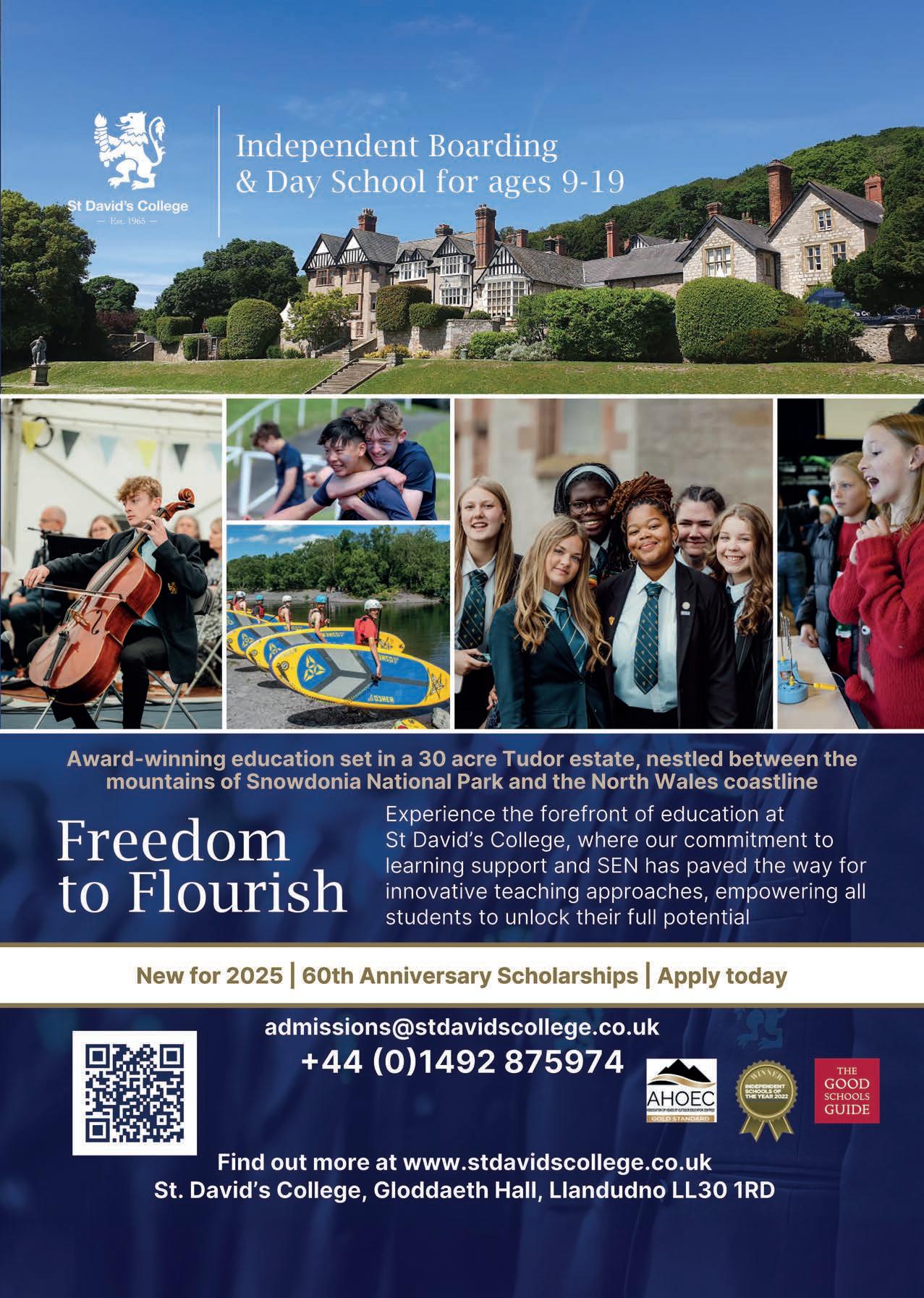
Nick Drane, Head Golf Coach at Loretto in Edinburgh, on its commitment to helping young players to achieve their full potential through golf
Rory McIlroy’s recent triumph at the Masters was so much more than a sporting milestone – it was a masterclass in perseverance and determination. His victory serves as a powerful reminder that, in golf, there’s no such thing as a perfect game. Success lies in the ability to maintain focus and composure, adapt to setbacks, and to demonstrate the resilience to keep moving forward.
Golf is more than just a game – it’s a teacher. It sharpens focus, instils patience, and fosters mental toughness. Beyond these invaluable life skills, the sport o ers countless benefits. Time spent outdoors improves overall mood and lifts the spirit, while its physical demands enhance coordination, strength and endurance. It’s unsurprising that schools across the country have started to include golf within their educational and extracurricular o erings.
Loretto’s Golf Academy has been at the forefront of this movement. Established in 2002 as the first of its kind within an independent school, it continues to set the standard for excellence in golf education. The game – and the qualities that it inspires – aligns with the school’s wider commitment to developing young people in mind, body, and spirit.
Today, Loretto Golf Academy welcomes golfers of all levels, from enthusiastic beginners to aspiring professionals. Three distinct training programmes – Club, Team and Reds – ensure that every pupil receives tailored coaching from five highly experienced PGA professionals. With access to top-class facilities and match play opportunities on some of the world’s finest courses, including on Scotland’s Golf Coast, each pupil is empowered to compete and realise their potential. Of course, it’s not all play. Pupils balance their time in the Golf Academy and at tournaments with their studies, extracurricular activities and additional responsibilities – mind, body and spirit in action.
As the home of golf, it’s essential that a love for the game is preserved, so that it can

“Golf is more than just a game – it’s a teacher. It sharpens focus, instils patience, and fosters mental toughness”
changing this – inspiring girls to embrace the game, challenge themselves, and seize every opportunity to achieve their potential. One third of our Golf Academy members are female – a statistic we are proud of and determined to continue growing.
continue to be enjoyed across generations. For its legacy to carry on, fostering a love for the sport from a young age is key. Many golf clubs have initiatives in place, encouraging children to take up the game. Loretto presents a unique o ering, being the only independent school in the country to host its own World Amateur Golf Ranking (WAGR) tournament – the Loretto Junior Golf Tour – which is open to all aspiring junior golfers, not just those at the school. Additionally, scholarships are available for those looking to combine an exceptional education with their golfing prowess.
Historically, golf has been perceived as a male-dominated sport, leaving women underrepresented. Loretto is committed to
Over the years, countless Lorettonians have gone on to achieve great success, testament to the talent that is nurtured here. Whether they go on to professional careers, secure college scholarships or continue to play for pleasure, their individual journeys reflect the impact of including golf as part of a holistic education. More than just a sport, golf fosters focus, resilience, and a love for physical activity – helping to shape well-rounded, confident young people.



Holland Park Gate by Lodha is Kensington’s favourite family development, preferred by parents for its proximity to many of London’s top schools as well as Holland Park’s 54 green acres. Enjoy a joyful, balanced and fulfilling family life with additional household amenities including:
• Kids’ club for fun & education
• Dedicated house car for school runs
• Weekly school uniform laundry services
• Partnership with leading educational consultancy


scan to expore: @lodha_uk hollandparkgate.com

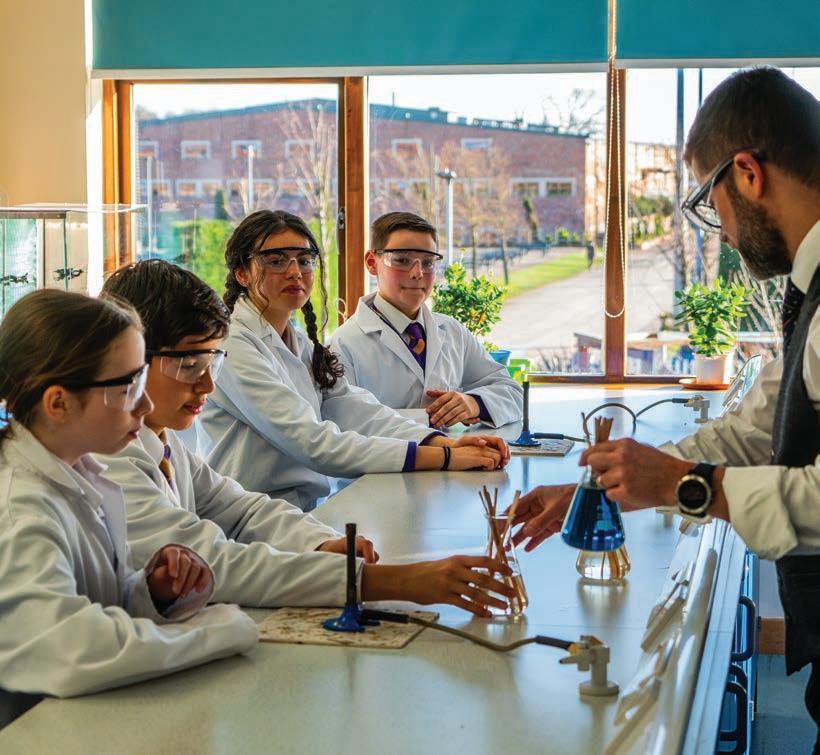
The Academic Director at Queen Ethelburga’s Collegiate believes it’s vital for schools to have a clear approach to the use of AI
Artificial Intelligence (AI) is here to stay. Schools cannot a ord to ignore it and are doing students a disservice if they do not discuss and agree their approach to its use. At QE, our approach has been to see this as a tool to enhance and support learners and teachers.
Why wouldn’t we? It is already embedded in daily life in di erent forms – whether it be driverless cars, facial recognition or suggested viewing on streaming platforms. We also know that AI is increasingly being utilised across di erent career sectors, from medicine to marketing, so we need to increase student exposure to its potential in their own future working lives.
After deciding on our approach, we wrote a policy (helped by an AI model, of course) outlining to sta not only how
AI can be used by teachers, leaders and support sta but also our responsibilities in using it. Here we considered ethics, data privacy and bias. This is the same message that was then repeated to students in a series of assemblies, delivered in an age-appropriate way.
There has been an emphasis with all students under 18 to use AI models that do not require a log in and to ensure they appreciate that they should not be entering personal identifiable information into any website if they do not know how it will be used. Younger students have worked with their teachers in lessons using AI as a class, but for the older ones, the focus is on encouraging them to experiment and learn how it can help them – but always in a controlled and managed environment.
As we began to get to grips with how AI can and is being used by sta and students – and as various guidance began to be published and updated – we
“Our approach has been to see AI a tool to enhance and support learners and teachers ”
produced documentation for students, helping them to better understand when it is (and isn’t) acceptable to use AI in their education, how to appropriately reference its use in coursework, and how to work with teachers to adopt the best strategies.
Further work was done with teachers on how to use AI most e ectively, ensuring the use was conversational, crafting the most e ective prompts and then building on these to train the AI model to produce the right response. As teachers – already used to articulating to students what we want them to do, observing their responses and then amending our instructions and guidance – we are ideally placed to be able to train AI models. Our academic sta have also been able to opt into a range of CPD training sessions. Here, they have been learning how to model AI best practice in the classroom, use it to personalise their teaching and student feedback, and harness its power to manage intense workloads in a way that gives them more contact time with students.
Recognising the importance of keeping pace with this rapidly developing area and ensuring that AI is seen as a tool for people to use, not fear, we created and recruited a new role – Head of Cognitive Science and Digital Literacy. As an experienced teacher within Creative Media and an enthusiastic user of technology, Jason Sharma-Pay is ideally placed to not only help us further develop our digital strategy but to better understand how human creativity, empathy, emotional intelligence and capacity for critical thought can ensure AI enhances teaching and learning and, ultimately, student outcomes.


The Deputy Head Academic at Tudor Hall School discusses the benefits of an all-girl environment in the important and exciting sixth form years
Sixth Form is arguably the most exhilarating phase of education, and the right choice can make all the di erence. It is the perfect time to make the move into a post-16 environment that is exactly the right fit for each individual student, to equip them with the skills, knowledge and self-confidence to succeed, whether their path leads to university, an apprenticeship or launching into a career or entrepreneurship.
So why choose an all-girls Sixth Form? There is no shortage of evidence around why girls in single-sex settings do better than their peers. This includes FFT Datalab analysis findings (as reported in the Guardian in May 2024) confirming that girls at girls’ schools outperform boys and girls in co-educational settings and outdo boys in all-boys’ schools –equivalent to 10% higher grades in 2023, even after adjusting for background characteristics.
Moving from co-education to an environment where every aspect of school life is tailored to provide the best experience for every girl can be truly transformational.
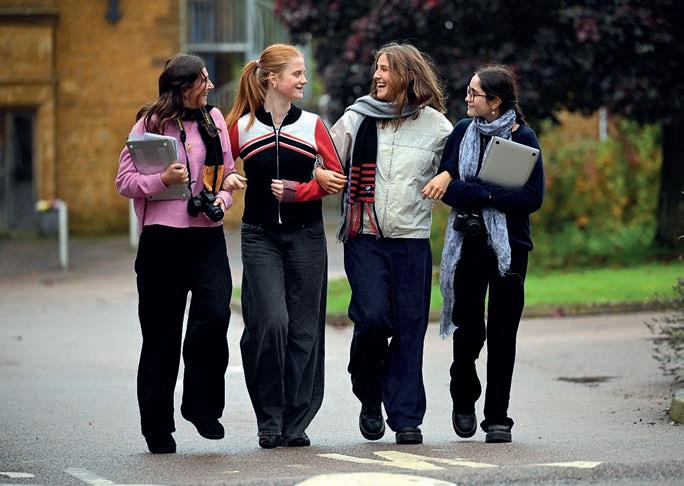
“There is no shortage of evidence around why girls in singlesex settings do better than their peers”
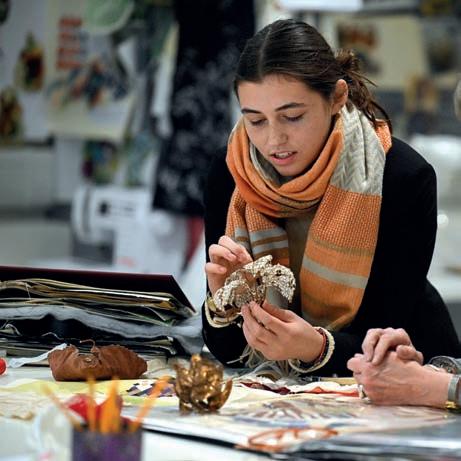
At Tudor Hall, our all-girl Sixth Form experience, called T6, is designed to give girls a unique place and time to shine. Flora joined the Tudor Hall Sixth Form from a large, co-ed boarding school. “I looked at Tudor as a Sixth Form option because they o ered a rare combination of my preferred A levels. And moving to all-girls has been fantastic in so many more ways than simply the subject choice. I have benefited hugely from smaller classes, prefer a learning environment where the social pressures of boys have been stripped away in day-to-day school life, and I have embraced a range of co-curricular opportunities with far greater gusto than I did in my co-ed school.”
Every Sixth Form has its own unique approach to curriculum, co-curriculum and pastoral care. The T6 mindset draws on the philosophy of High Performance Learning (HPL). Tudor Hall is one of only 15 independent schools in the UK working towards the prestigious HPL World Class School accreditation based on cognitive and neuroscience research. It’s also important to consider subject choice and wider support throughout the
Sixth Form journey. Tudor’s Sixth Form timetable is not finalised until girls have chosen their desired subjects, meaning that individuals are able to study combinations of A levels – from the 27 subjects on o er – that may be impossible elsewhere. The team of tutors, expert teachers, plus the Head of Professional Guidance and the Head of Sixth Form help each girl to successfully navigate Sixth Form and thrive.
Flora has dived right in. She says: “I am completing the Leith’s School of Cookery diploma, doing my Gold Duke of Edinburgh’s Award and have rekindled my love of drama and singing.”
An all-girls’ environment can make a huge and lasting di erence in those exciting Sixth Form years.

Ages 4 -18
Coastal Location
Fully Boarding
GCSE & A level
1:5 staff to students Leading Pastoral Care







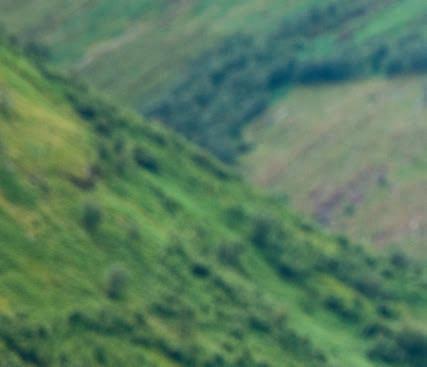

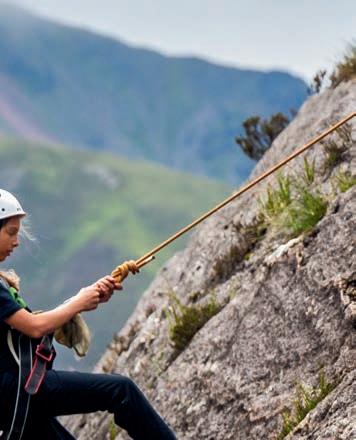






Matthew Doggett of Worth School describes its mission to combine academic rigour with strong values to bring out the very best in students
Whether a student continues their journey with us from Year 11 or joins for a fresh start, they immediately become part of a Sixth Form community that is both closeknit and supported by the wider school. It’s the best of both worlds: independence and leadership opportunities in a setting that still feels like family. As one parent recently put it: ‘My child has never been happier or more motivated. Worth sees the whole person and helps them flourish’.
At the heart of our Sixth Form provision is our belief in education with heart and soul. That means forming not only the intellect but also the person – instilling the values and habits that will last a lifetime.
In a world where 16–18-year-olds face enormous social, emotional and academic pressures, this concept has arguably never been more vital. At Worth, Community is not just a buzzword but one of our six Benedictine values, alongside Humility, Silence, Worship, Stewardship, and
Service. These values shape every part of school life and ensure that our young people emerge not only capable but compassionate, grounded and generous of spirit.
A key part of our distinctive Sixth Form experience is the Spencer Building, a dedicated Sixth Form centre designed to support both academic focus and social development. With its spacious study areas, welcoming common room and fully equipped lecture theatre, it provides a grown-up environment where students can thrive. While our Sixth Form students remain closely connected to the wider school, the Spencer Building gives them a space of their own, encouraging independence, selfdiscipline and a mature approach to learning.
One of the most powerful tools we use to foster this outward-looking approach is our innovative Leadership Formation programme. Launched for all Year 12 students, it has been a game-changer. Through workshops, guest speakers, reflection essays and portfolios, students are encouraged to ask what true leadership looks like – and how they can live it. Importantly, this process redefines the idea of what it means to lead. It’s not
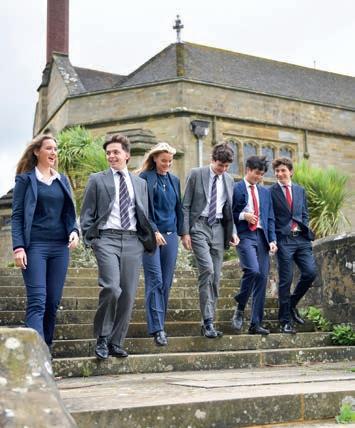
“Through workshops, guest speakers, reflection essays and portfolios, students are encouraged to ask what true leadership looks like”
about popularity, but about integrity, responsibility and the desire to serve others.
Although not every student will become a prefect, every participant in the Leadership Formation programme is recognised for their growth and contribution, with formal accreditation and real-life skills they will carry far beyond school. More than that, they become servant leaders – young people who understand that leadership is about lifting others, setting an example and building real relationships grounded in respect, empathy and strength of character.
In an age where young people are often encouraged to look inward, we teach them to look outward – to connect, contribute and care. Community and altruism are not add-ons to academic success; they are essential to building fulfilled lives. At Worth School, Sixth Form is where intellect meets heart, and ambition meets service. Our ambition is for a place where young people don’t just achieve – they become.


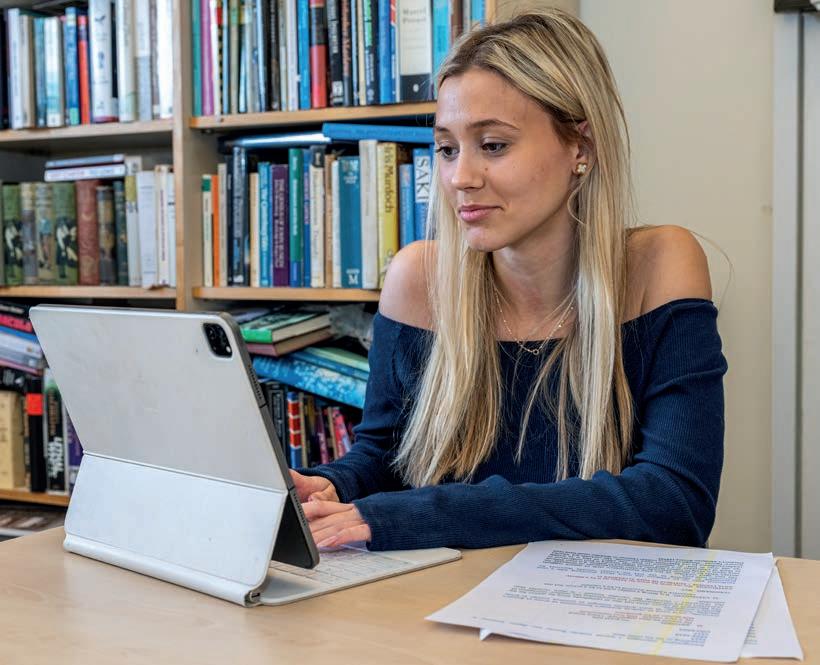
James Barton of MPW Group on why AI is a powerful and positive force in education, but always in a supporting role
Would Shakespeare have been more or less powerful with an AI copilot? Would his output have multiplied, or would the poetry have thinned? To prompt or not to prompt is not the point – the question is whether the tool serves learning or takes over.
From the Jacquard loom to Babbage and Lovelace, from Mary Shelley’s laboratory to Turing’s conversational test, we’ve seen radical technologies since before the Bard. In education it feels novel because the AI rollout is happening now. The present twist is scale. Large language models can draft, summarise and simulate at speed.
The parental voice of concern is justifiable. If a machine performs the heavy lifting, does our own intelligence slacken? Struggle is part of learning and the temptation to outsource that struggle is real. Institutions harbour their own fears. What if AI becomes so fluent that erroneous or inauthentic
submissions slip past detection, eroding trust in assessment? These risks are not imaginary but call for design, not drama.
Education is not the e cient production of tidy answers, but the formation of curiosity, integrity and judgement. Keep that in view and AI remains a tool, and even a co-pilot, but not the tutor. Ring-fence its use through transparent prompts, declared outputs and clear limits. Build assessments that prize process as well as end product – more in-class writing, viva-style orals, iterative portfolios and applied tasks that require students to show their working as well as their results. Good design makes misuse harder and learning stickier. Used well, AI is genuine value-added. In secondary schools, it can generate retrieval practice, adapt reading levels and o er immediate, low-stakes feedback. For pupils learning in another language, it can clarify instructions without lowering the bar. In universities, it can annotate articles, propose code comments, draft lab pre-work and produce alternative explanations for stubborn concepts. Think
“No model reads a room and spots the student who hides brilliance behind quietness or turns a near-miss into an ‘aha’ moment”
of AI as rehearsal room – a place to try an argument, hear it back and refine it before the performance that counts.
AI will certainly replace tasks. Marking routine quizzes, preparing di erentiated materials and providing first-pass feedback are jobs machines already handle well. But no model reads a room and spots the student who hides brilliance behind quietness or turns a near-miss into an ‘aha’ moment. This means the teacher role shifts from solo lecturer to conductor of attention and designer of practice – teacher-led, now tool-enabled. Prospero keeps command of the stage not because he owns the book but because he understands the play.
In the workplace, large firms now deploy secure, white-labelled models to cut drudgery and raise quality. Graduates will meet such systems on day one. Failing to teach AI literacy would leave them under-prepared. If Shakespeare had an AI co-pilot, the task would still be his – he would choose the question, test the line and own the judgement.
At MPW we learned during the pandemic that technology can preserve momentum, but teachers sustain learning. That lesson now shapes a clear approach. We use AI where it demonstrably adds value –personalising practice, widening timely feedback and supporting EAL learners –while keeping authorship, fairness and the teacher-student relationship at the centre. Tools extend us, teachers transform us. Keep the craft in charge and Shakespeare’s co-pilot earns a seat but not the quill.



Joshua Clark of TASIS England on how schools can use technology to turn learning into a personal journey for every student
Education has always evolved with technology – from the humble abacus and chalkboard to the rise of artificial intelligence (AI) and virtual reality (VR). Today, schools are focusing on how to provide personalised learning while still maintaining rigorous academic standards.
For international schools, technology supports learning for students from diverse cultural, linguistic and academic backgrounds. Schools with students from all over the world must consider di erent levels of academic preparation, cultural perspectives and language proficiency. In these settings, personalisation becomes a critical focus to ensure every learner is both challenged and supported. One student may arrive excelling in mathematics but still developing confidence in English. Another could come with strong language skills but limited experience in inquiry-based science. Technology allows teachers to adapt accordingly. It also creates opportunities for students to work at their maximum level of interest, ability and pace. Personalised learning gives more ownership, as students shape their education through elective choices, interdisciplinary projects
“Technology creates opportunities for students to work at their maximum level of interest, ability and pace”
and inquiry-driven coursework. Technology also provides pathways to adapt pace or explore interests. Adaptive platforms adjust tasks to suit each learner’s level, while STEM labs, maker spaces and robotics programs encourage students to test ideas, design solutions, and express creativity in ways that align with their personal strengths. As personalisation increases, the role of the teacher becomes more critical. Teachers curate resources and delivery methods to ensure learning standards are met while considering how to di erentiate based on the learning opportunities and needs in the classroom. They guide students in using
resources and o er feedback instantaneously as well as over time. Most importantly, teachers help students discern when technology should be used and when more traditional methods – discussion, reflection or hands-on activities – are more e ective. When technology is implemented thoughtfully, it can unlock opportunities. Adaptive software provides tailored modules and exams can triangulate the edge of a student’s understanding. Robotics, coding and 3D printing allow students to be curious and develop essential problemsolving skills, while interactive displays make abstract concepts more concrete. Technology is not a panacea and overreliance on devices risks limiting human interaction. Students may have di ering levels of prior exposure to technology, creating inequities in skill and confidence. Data privacy and ethical questions around AI demand careful consideration, too.
Every learning community must consider its own goals, resources and needs. Clear guidelines around device use and a common understanding of the role of technology ensure that it enhances rather than overwhelms the learning process. Ultimately, personalisation works best when innovation is balanced with the human connections – it is in that balance that the most meaningful teaching and learning takes place.

JOSHUA CLARK Director of Student Recruitment and Admissions
TASIS England

UNIVERSITY

University of Hong Kong – one smart alternative for students looking beyond the the 'Big Four' degree locations
Page 66
University options beyond the ‘Big Four’ prestige locations are coming into play, says Jessica Harris, Head of Quintessentially Education
The UK, US, Canada, and Australia have dominated the global education market for decades. This ‘Big Four’ o ered both world-renowned institutions and the promise of long-term opportunity for aspirational students. But an unmistakable shift is taking place in international education, opening up competition for global talent like never before.
As a dual UK and US agency, we are supporting increasing numbers of students looking to a broader range of programmes across new regions. While demand for the UK and US remains high, there has been a significant increase in families casting the net wider.
A host of reasons, including migratory pressures, rising tuition fees, demographic shifts, political and regulatory changes, and credibility of post-study pathways, have led ambitious students to question previous assumptions and consider alternative places to study.
Policy and visa shifts can disrupt the best laid plans. Recent changes to student visa processing times and post-study work rules in some countries have created uncertainty. For example, in Australia, visa fees jumped to AUD $1,600 last year, with a further proposed rise for this year. Other policy changes have meant post-study work is now capped at two years. In the US, meanwhile, heightened scrutiny on visa applications, evolving documentation requirements, and

shifting timelines for F-1 processing have made it increasingly important for students to prepare early and remain adaptable. Rising costs across the ‘Big Four’ means students and their families are recognising potentially better value elsewhere. Tuition fees in these four countries can exceed £50,000 per year before living expenses. In countries such as Germany, Austria or the Netherlands, tuition is minimal by comparison, even for international students. In Germany, for example, most public universities charge no tuition fees or request very modest semester contributions of around €250–€350 for undergraduate study. There are exceptions such as BadenWürttemberg, where non-EU students

“Rising costs in the ‘Big Four’ nations means students and their families are recognising potentially better value universities elsewhere”
pay about €1,500 per semester, but that’s still a fraction of UK or US tuition fees. Growing global prestige is another factor influencing students’ desire to consider a broader set of university locations. While the UK and the US continue to dominate the top of the QS World University Rankings, an increasing number of European and Asian institutes such as ETH Zurich and the National University of Singapore (placed seventh and eighth in QS World University Rankings 2025) are appearing. These institutions are attracting worldclass faculty and securing international research partnerships as their prestige becomes more recognised.
Cultural and professional opportunities are also seen as another factor. Studying outside the Big Four can immerse students in dynamic, fast-growing regions – whether it’s joining the tech ecosystem of Singapore, learning in multilingual Brussels or building professional connections in Dubai’s thriving business scene. Such experiences can di erentiate graduates in a competitive job market. These locations may also bring flexibility for transfers and postgraduate study. Certainly, a degree from a respected university in Europe or Asia can act as a springboard to postgraduate study in the UK or US, o ering an alternative route to the same long-term goals.
From Germany’s tuition-free public universities to the Netherlands’ innovative English-taught programmes, Europe o ers an exceptional return on investment. Institutions such as TU Munich, Heidelberg University, and Wageningen University are beginning to really rival their UK/US counterparts in research output and graduate employability.
And for students who coveted Harvard’s government, public policy and economics courses, Sciences Po is an excellent alternative. This prestigious French university, which has long attracted many of Europe’s political elite (President Macron included) has campuses in Paris and a number of historic French towns and teaches many undergraduate courses in English.
For those pursuing a STEM pathway, a great alternative to MIT in Boston or Imperial College in London is the Delft University of Technology in the Netherlands. Also known as TU Delft, this public university is much cheaper than MIT. The annual fees for international students are the equivalent of approximately $18,600 USD per year, compared to MIT’s $57,790 USD, and the town has much lower living costs than Boston. Bocconi University in Milan is a fantastic alternative to both

the University of Pennsylvania and LSE in London – o ering a similar range of economics, finance and management courses – while IE University in Madrid has similarly good courses in business, management and international relations.
And for students who want something collegiate and historic with English as the primary language, proximity to the UK, and generous post-study work visas, Ireland’s Trinity College Dublin and University College Dublin o er a seamless cultural transition with strong academic credentials.
Regional hubs such as National University of Singapore and University of Hong Kong combine academic excellence with access to the fastest-growing markets in the world – ideal for future leaders in business, finance, and technology. Meanwhile, Dubai and Abu Dhabi now host an impressive roster of international branch campuses for leading UK, US, and Australian universities. This means globally recognised degrees in a strategically located and cosmopolitan environment.


“Learning in multilingual Brussels or building professional connections in Dubai – such experiences differentiate graduates in a competitive job market”
For instance, University of Birmingham Dubai o ers the same UK-accredited degrees as its home campus, and with a strong focus on business, engineering, and computer science. Heriot-Watt University Dubai is renowned for its business and engineering programmes, while in Abu Dhabi, New York University Abu Dhabi (NYUAD) stands out for its liberal arts approach and strong research profile, combining US academic traditions with an immersive global outlook.
For families who value the prestige of a UK or US education but seek a

ABOVE
warmer climate, dynamic job market, and lower living costs than London or New York, these UAE campuses may be an astute choice – particularly for those students interested in internships and industry connections in the Gulf’s thriving sectors, which include technology, construction, hospitality and renewables.
Exploring beyond the Big Four is about widening possibilities. Students can get expert help in creating shortlists tailored to their academic goals, career aspirations and lifestyle preferences. At Quintessentially Education, our advice to students is to ensure they choose universities that are not just reputable but right for them. So, alongside the tangible values such as tuition costs, living expenses and graduate outcomes, think about the admissions process and the all-important lifestyle components. It can be especially helpful to talk to other students who have attended shortlisted institutions for firsthand feedback.
The good news for students is that a prestigious degree remains within reach, regardless of geopolitics. The key lies in having an informed and flexible strategy that balances ambition with pragmatism. The best higher education plans can evolve if the situation changes by keeping a range of potential options on the table.

We are looking to expand our family of high quality, premium schools and are looking to work with partners in new locations.
Over 500 years of academic excellence

Proven success in establishing K-12 schools internationally
Our schools have all achieved strong inspection ratings and prestigious accreditations

Our schools combine the best of RGS Guildford, local cultures andan inspiring UK curriculum 5 schools across UK, Middle East and China
Find out more
To discuss opportunities email enquiries@rgsgi.co.uk or call +44 1483 880 600. www.rgsgi.com

John Doy of Mayfield School stands up for the importance of arts subjects in helping young people find their talents and determine their future direction
The decline in arts subjects in UK schools is almost taken for granted these days. At GCSE, arts entries have declined 47% since 2010, with A levels faring marginally better at a still depressing 29% decline, according to Campaign for the Arts (2023 data). For some this has been a necessary correction towards more ‘useful’ and ‘productive’ ‘academic’ and STEM subjects. For others, it is a sad slide towards a Gradgrindian fact-based education system that has ceased to value creativity and artistry.
In this context independent schools are frequently seen as the last bastions of hope (or bulwarks of unfair privilege, depending on your point of view) for the arts in secondary education. Amid the rancour and class warfare, however, it is worth wondering what all the fuss is about – why do many independent schools, even with current more straitened financial circumstances, still insist on providing a broad-based education that values and cherishes the creative arts?
The answer is quite simple: the first essential step in unlocking a student’s full potential is to give them the opportunity to discover where their talents lie. It is infinitely harder for a child to do this if their daily curriculum is narrowly focused on traditional academic subjects.
At Mayfield, we don’t just pay lip service to a broad curriculum, we ensure students experience it firsthand. In Years 7 and
“The first essential step in unlocking a student’s full potential is to give them the opportunity to discover where their talents lie”
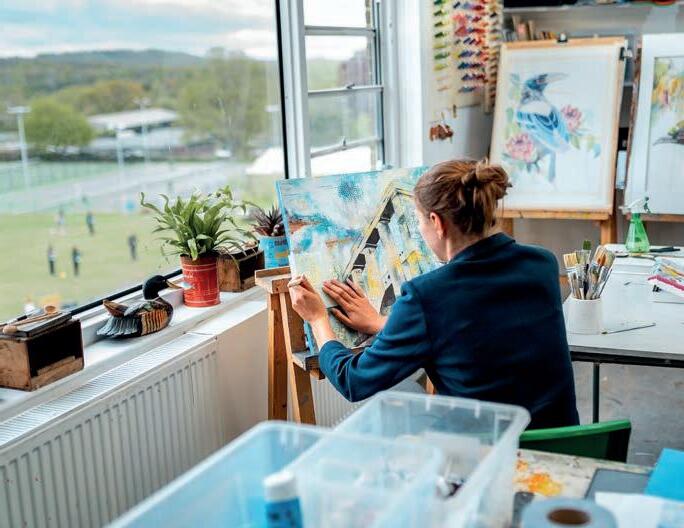
8, weekly lessons in Food and Nutrition, Art, Textiles, Ceramics, Music and Drama sit alongside English, Maths, Science, History, Geography, RS, Languages, PE and Computing. How are we supposed to find out if they’re any good at these things if we don’t give them time to try them? It’s only by giving young people the space to develop and learn skills that we give them opportunities to develop to their full potential. At the other end of the school, the work our students produce for their A levels in the creative arts is of exceptionally high quality and sees them going o to some of the best art colleges in the country.
If a child-focused argument doesn’t win the day, then how about economic home truths? Our creative industries generate £108 billion. They employ over two million people. In an epoch obsessed with growth, they have grown at one and a half times the rate of other sectors, and this despite the declining take-up, as reported by Campaign for the Arts. If time spent at school on the arts isn’t productive then I’m not sure what is.
Even if students aren’t bound on a future in theatres, art galleries or on film sets, then
surely the transferable skills of teamwork, creativity, flexibility and self-confidence that the creative arts nurture so beautifully must be deemed worth investing in – especially in an unpredictable job market that is evolving with ever-increasing speed.
The benefits of a broad-based curriculum rich in these subjects are palpable on a micro and macro scale, whether you’re a dyed-in-the-wool Romantic or a hard-headed Gradgrind. Imagine what we could achieve if we had an education system that truly valued this approach and o ered it to everyone?

Head Academic Mayfield School
bessa.asia
BESSA is the only curated annual forum for families based in Asia to personally meet admissions directors at the best schools in British education. The British Education and Schools Shows in Asia take place on Saturday 1 November at the Goodwood Park Hotel in Singapore and on Sunday 2 November at the JW Marriott Hotel in Bangkok.
Drop in at any time to explore a UK boarding education. Speak with admission directors in one-to-one discussions, asking specific questions tailored to your child's needs and attend short presentatinos from industry experts. Topics include navigating the admissions process and choosing the right fit school for your child.
Bessa Singapore
The UK's Top Schools: Admissions Event Goodwood Park Hotel, 22 Scott Road, Singapore; 10am to 4pm, 1 November 2025
Bessa Thailand
The UK's Top Schools: Admissions Event JW Marriott Hotel, 4 Sukhumvit Road, Bangkok 10110; 10am to 3pm, 2 November 2025 Register to join us: bessa.asia

Head: James Hodgson
Location: Bedford, Bedfordshire
With five stars in Fortune’s World’s Leading Boarding Schools 2023, Bedford School is within the top six boys’ boarding schools worldwide. The Bedford curriculum provides a balanced and varied choice of subjects, to cater towards each boy’s individual strengths. Academic excellence is central to school life; we encourage boys to aspire to the highest possible standards and exceed their expectations. We have a long history of impressive exam results at GCSE, A-Level and IB.
Head: Steve Marshall-Taylor
Location: Brighton, East Sussex Brighton College is one of the country’s leading independent schools for girls and boys. The College regularly achieves the best A-level and GCSE results of any co-educational school in the UK, whilst ensuring children enjoy a wealth of extracurricular opportunities. Renowned for its focus on kindness, the school also excels in art, music, dance, drama and sport, and is proud to ensure every child is valued for who they are.
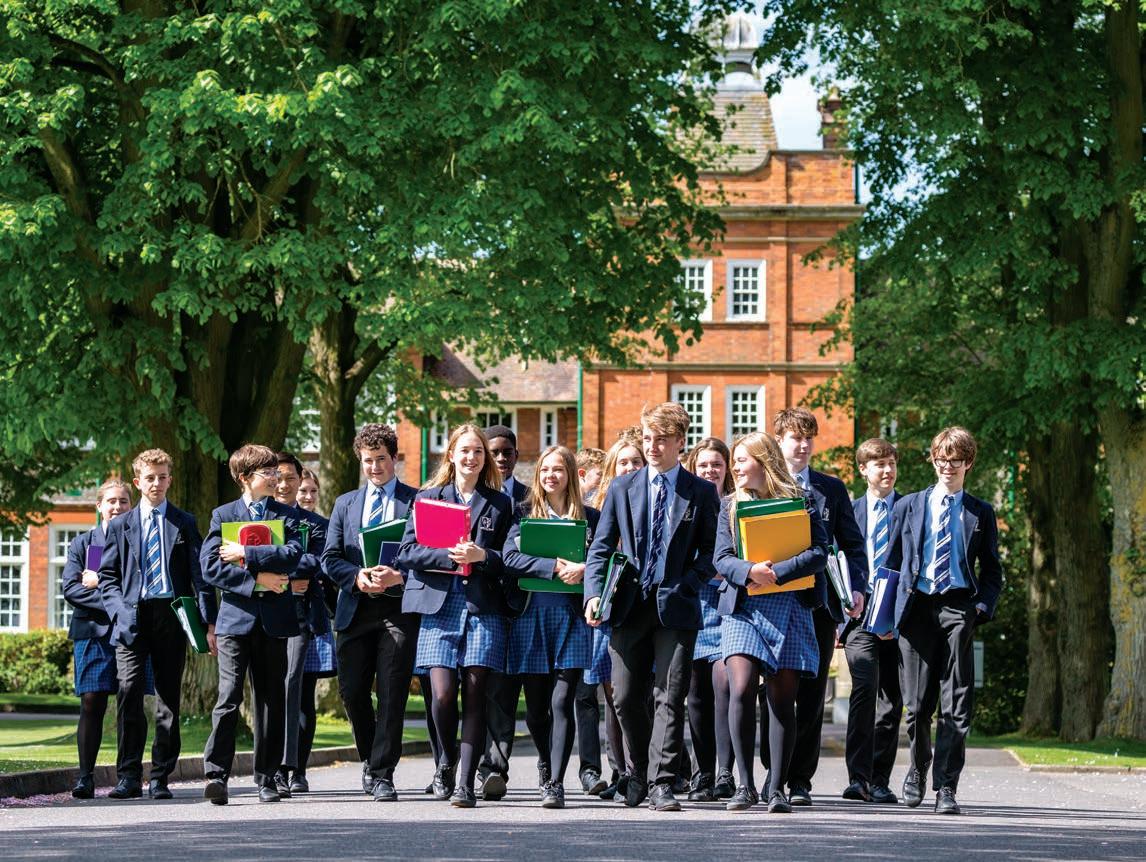
Head: Michael Punt
Location: Bromsgrove, Worcestershire Bromsgrove School’s results are impressive, but Bromsgrove is much more than a place to get good grades. It prides itself on being a happy school where children of all ages can thrive both academically and outside of the classroom. In the Sixth Form, pupils can choose either the IB Diploma or A Levels. Results are excellent with an average IB score of around 39 points for the last few years. At A Level, 60% of candidates attain a grade A* to A, and 83% achieve A* to B in 2025.
Head: Ceri Jones
Location: Caterham, Surrey Caterham School, recognised as the Independent Senior School of the Year 2023, is a top-10 co-educational school in the UK. Conveniently located just 45 minutes from central London and close to major airports, the school is set on a stunning rural 200-acre campus,
providing a privileged experience for its boarding community of 160 pupils.
Head: Nicola Huggett
Location: Cheltenham, Gloucestershire
Established in 1841, Cheltenham College is a distinguished coeducational day and boarding school for pupils aged 13 to 18. There is a strong sense of pride in helping pupils achieve, going beyond parent expectations, and above pupil expectations of themselves.
Head: Eve Jardine-Young
Location: Cheltenham, Gloucestershire Cheltenham Ladies’ College opened its doors in 1854, with the purpose of providing girls with a thorough academic education and, over 160 years later, we continue to be proud of our strong tradition of innovation, academic excellence and empowerment in the education of young women.

Head: Tom Rogerson
Location: Pease Pottage, West Sussex
Cottesmore is an award-winning academic boarding prep school for children age 4-13 in West Sussex, less than an hour from London.
Head: Mrs Sam Price
Location: Cranleigh, Surrey
Cranleigh School is a co-educational independent day and boarding school for pupils aged 13-18, situated in Surrey, just 10 minutes from Guildford. Cranleigh Prep School is directly across the road starting from age 7 (with weekly boarding from age 10), enabling siblings of varying ages to be educated together.
Head: Mr John Davies
Location: West Lavington, Wiltshire
Dauntsey’s is a leading co-educational boarding and day school for pupils aged 11 to 18, combining academic excellence with a strong spirit of adventure. Founded in 1542 and set in the heart of the Wiltshire countryside, Dauntsey’s o ers a forward-thinking education rooted in tradition.
Head: Emma McKendrick
Location: Cold Ash, Berkshire
Downe House is one of the top all girls’ boarding schools in the UK, o ering a world-class traditional boarding education with a modern twist. With a focus on excellence and the individual, girls are encouraged to make the most of the exceptional academic, co-curricular and enrichment opportunities on o er and to create their own paths, authentic to themselves, and aspiring to be the best versions of themselves they can be.
Head: Mr Robert Milne
Location: London
Dulwich College is an academically selective independent boys’ school in south London set in a 70-acre campus, only 12 minutes by train from central London. From August 2025, the College will be led by Mr Rob Milne.
Head: Simon Cane-Hardy
Location: Elgin, Moray
Gordonstoun is more than a school. It is a philosophy of education in action. Our unique curriculum gives every young person the confidence to achieve what they otherwise would not, broadening not only their minds but their life horizons and opportunities. Dr Kurt
Hahn, our founder, believed that young people flourish when their horizons are broadened alongside academics. This belief has served our students well for over 90 years. All students take part in outdoor education and sail training, explore sports and the performing arts, and participate in one of our nine community services. This develops their understanding of the wider world, instils a can-do attitude, and equips them with essential skills for life.
Head: Caroline Jordan
Location: Oxford
Headington Rye Oxford is a curious, confident, ambitious school set in a beautiful location, located just one mile from Oxford city centre. The Senior School, led by Headmistress Caroline Jordan, is a day and boarding school for girls aged 11-18 set on a 23 acre oasis of green space, with superb and extensive facilities.
Location: Singapore and Hong Kong Keystone Tutors was founded in 2007 and have had o ces in Singapore and Hong Kong since 2017. They are the leading tutoring provider for 11+, 13+ and 16+ entry to top UK independent schools along with advising on all aspects of the application process.
Head: Dominic Oliver
Location: Oundle, Peterborough
Oundle School is one of Britain’s leading co-educational independent schools, located in the charming market town of Oundle, Northamptonshire. Oundle is closely connected to the town, with pupils actively participating in the wider community rather than being isolated from it.
Head: John Moule
Location: Radley, Oxfordshire
Radley College is a full boarding school for boys situated on a beautiful 800acre estate just three miles outside the city and university of Oxford. We work hard to create a diverse community where boys will be happy, grow in self-confidence, thrive academically, and make the most of the many opportunities on o er.
Head: Gareth Parker-Jones
Location: Rugby
Rugby School is a leading coeducational, 7 days-a-week school located 48 minutes by train from London and a 40 minute drive from Birmingham Airport. We recognise

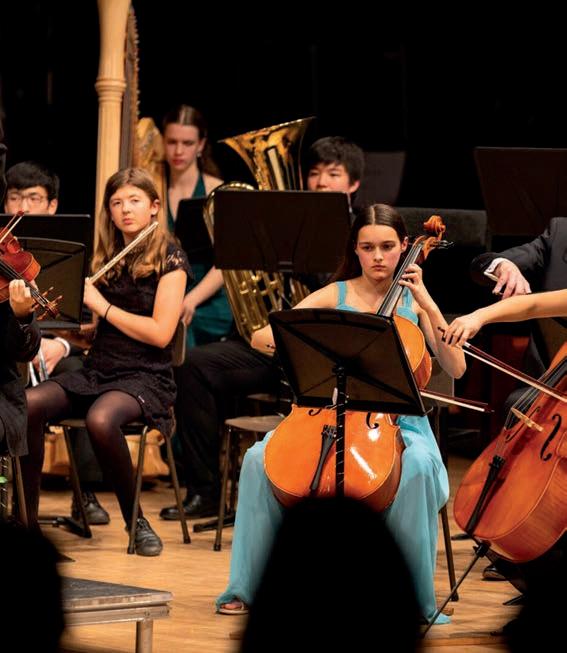


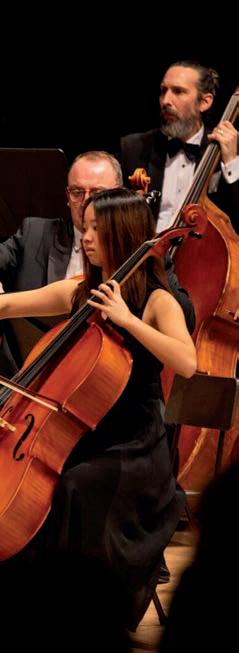
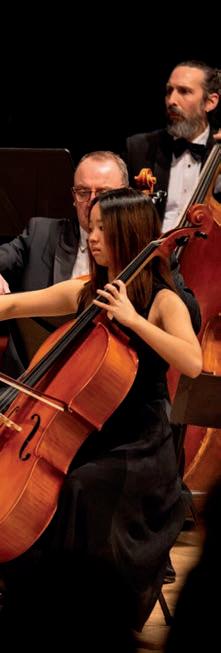
that the three strands of academic, cocurricular and pastoral are inherently and inextricably linked. It is the successful combining of these three strands which is at the heart of our “Whole Person Whole Point” ethos.
Head: Jesse Elzinga
Location: Sevenoaks, Kent
Sevenoaks is a co-educational day and boarding school for students aged 11 to 18, on a 100-acre campus half an hour from London. Boarding is an important part of the school’s ethos and students of 70 di erent nationalities contribute to an atmosphere that is globally engaged, tolerant and open-minded.
Head: Dr Ruth Sullivan
Location: Sherborne, Dorset
Founded in 1899, Sherborne Girls’ is proud to be one of the leading, fullboarding girls’ schools for all-round personal development and academic fulfilment. It o ers a setting where academic focus is combined with the space to enjoy musical, creative, sporting and artistic pursuits, providing a wonderfully broad and
enriching education that develops the unique talents of every girl within a supportive environment.
Head: Leo Winkley
Location: Shropshire
Founded in 1552, Shrewsbury School is a co-educational boarding school with 800 pupils aged 13-18. We are committed to strong academic standards and the highest level of pastoral care and believe in a vision of holistic education.
Head: Emma Watson
Location: Bramley
You want your daughter to achieve academically, but you want her to be intelligent in more ways – to be confident socially, to have a strong moral compass, to shape the world around her. At St Catherine’s we support your daughter in building the intellect and character that will help her develop as a bright, confident and vibrant individual. At the heart of this is developing a sense of self-belief, that she can achieve whatever she is driven do to in life.
Head: Alastair Chirnside
Location: Oxford
Founded in 1863, St Edward’s School (known a ectionately as Teddies) is a thriving co-educational boarding school o ering the unusual combination of a spacious 100-acre site in the heart of Oxford. About 83% of pupils are boarders. The school has an excellent reputation for its pastoral care system, with support from tutors, our three Counsellors, the Chaplain and trained student peer mentors.
Head: Jane Gandee
Location: Winchester, Hampshire
St Swithun’s School is a renowned independent day, weekly and fullboarding school for girls set outside Winchester, 50 minutes by train from London. The school has a long-standing reputation for academic rigour and success, celebrating intellectual curiosity and the life of the mind. Girls are expected to develop individual passions, and through them to acquire a range of skills and characteristics. These include a willingness to take risks, to question and to debate, and to persevere in the face of di culty.
Head: Jude Lowson
Location: Canterbury, Kent
The King’s School Canterbury is reputedly the oldest school in the world, with origins dating from 597AD. Located in the South East of England, we are just under an hour from London, within 90 minutes of London Heathrow, Gatwick and City airports and just 20 minutes from the beautiful Kent coastline.
Head: James Priory
Location: Tonbridge
Tonbridge is one of the UK’s leading boys’ boarding and day schools and highly respected for providing a world-class education. The school occupies an extensive 150-acre site, just a 40-minute train journey from London. A key strength of Tonbridge is that it blends tradition and innovation successfully, with high achieving boys wearing their gifts lightly.
Head: Richard Maloney
Location: Rutland
Founded in 1584, Uppingham has a long and proud heritage, while also
embracing the opportunities of the future in its educational approach. The school’s warm, compassionate, welcoming and supportive environment is focused on values; a place where pupils are encouraged to embrace a holistic curriculum that emphasises the importance of intellectual rigour, exploration, critical analysis, creativity, risk-taking, communication and teamwork.
Head: Mrs Jo Duncan
Location: High Wycombe, Ranked as the UK’s top boarding school, Wycombe Abbey is a world-class establishment which strives to provide high academic achievement with a holistic and rewarding educational experience. Results are consistently impressive: 75.7% A* to A grades at A level and 97% 9 to 7 (61% at the highest 9 grade) at GCSE in 2025. Our leavers go on to study subjects as diverse as Architecture, Aeronautics, Neuroscience and Linguistics at Oxbridge and Russell Group universities, while Medicine, Law and Science/Engineering courses remain among the most popular. An increasing number of girls are also gaining places at the best liberal arts colleges and Ivy League universities in the US.
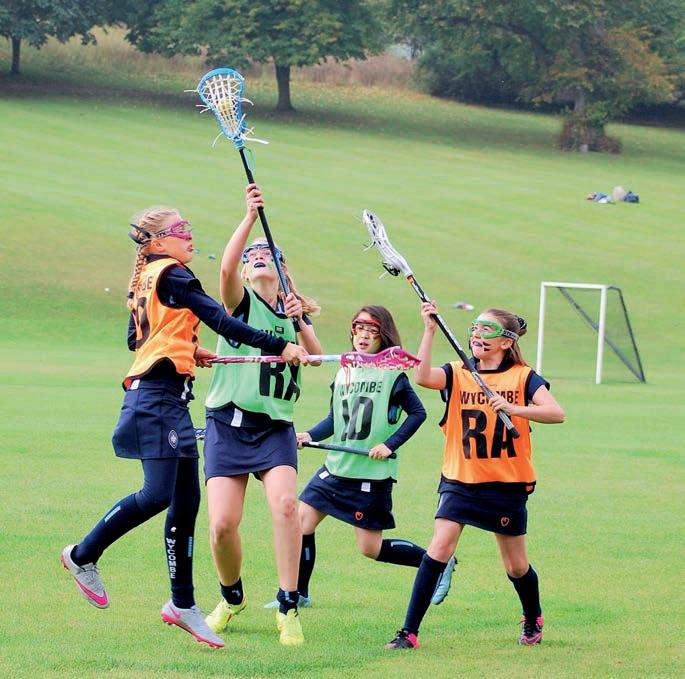
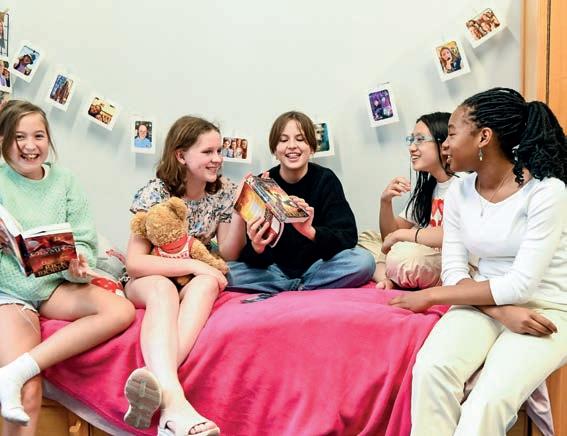
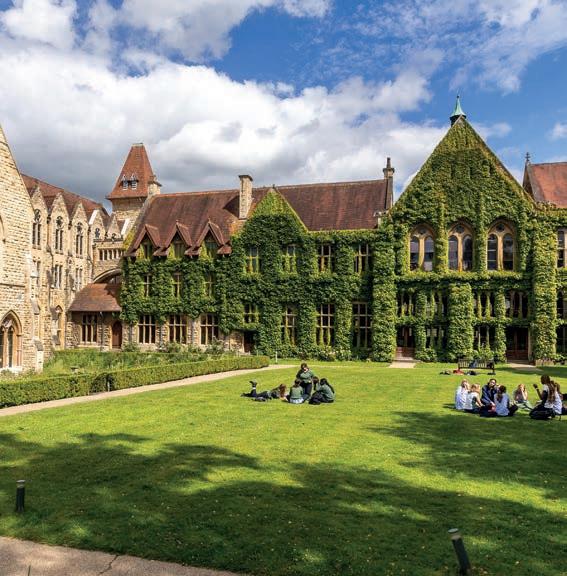
White House Guardians (WHG) was started in 1992 by the Hume family and today continues to be a family business. We o er guardianship to students across England, Wales and Scotland as one of the largest and oldest Guardianship companies in the UK. We o er local support to students with a network of local guardians known as Local Guardians within one hour of all our students, so there is a White House presence close to every school where students are in our care. This means that we can be at school quickly and o er host families and other services locally.



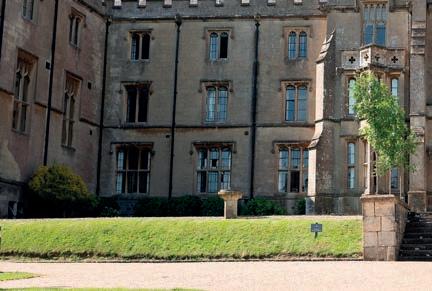

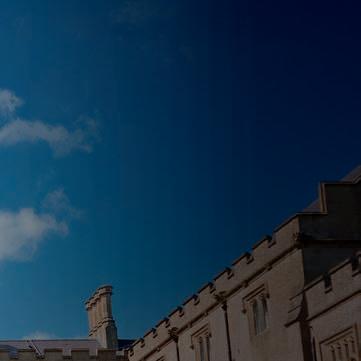
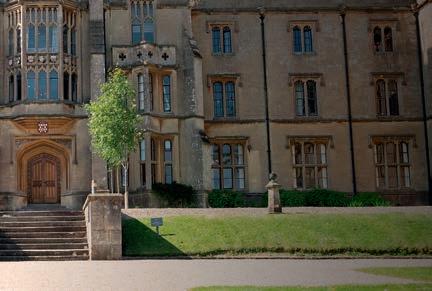
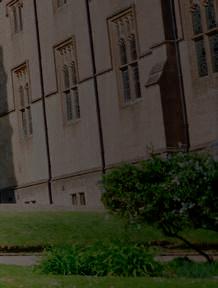


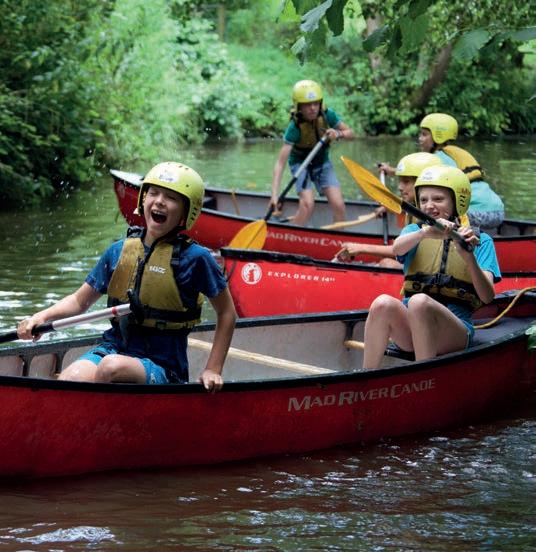












































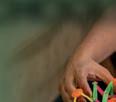

















with 60
The Headmaster of Wycli e on his background and educational philosophy
What is your background?
I was a financial PR consultant then did o cer training at the Royal Military Academy at Sandhurst. I became an o cer in the Royal Green Jackets, which later became the Rifles, and served in Iraq. After leaving the military, I became a geography teacher and housemaster at a boarding school in Oxfordshire. I was there for 11 years, then moved to a school in Yorkshire as Senior Deputy Head before joining Wycli e.
What excites you most about your role?
It’s a pivotal time for independent schools and what excites me is tackling the challenges and opportunities before us head on. Wycli e is a community which leaves no stone unturned in developing the best education for all abilities across a variety of disciplines. Opportunities are abundant here and all pupils are encouraged to have a go. Ambition for what we all can achieve – pupils and sta alike – is at the core of all we do. People have preconceptions about independent schools, but we want everyone to take a look behind our doors and see what we are doing.
What is your academic philosophy?
It’s about developing our children before we let them out into the big wide world – providing the opportunity to see what’s there and what might interest them, where they might excel. We need to take into account pupils’ individual learning needs but also ensure they don’t see limits to what they can do. We need to know their strengths and provide the environment to nurture those talents. It is important to keep that motivation at the centre – something which can be integral to unlocking a child’s potential and setting them up for their future.
Can you tell us about one pivotal moment in your career?
Becoming housemaster. I enjoyed the opportunities that boarding gave
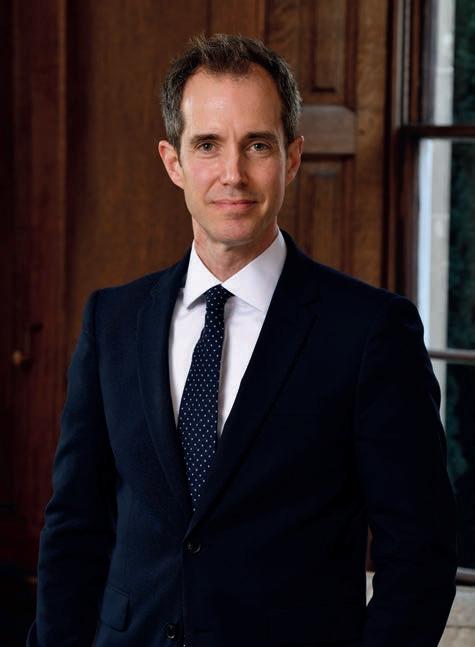
me to positively influence the lives of pupils and colleagues. I’ve worked with inspirational leaders and Heads, all of whom demonstrated a wonderful sense of humanity and drive to do their best, and in whose footsteps I wish to follow.
What is your school’s approach and what sets it apart?
I love the grounded unpretentiousness, where everyone from the age of two to 19 is known and valued. What sets Wycli e College apart is a focus on holistic development of the child. We don’t set any
boundaries but look at the whole person, the character of the individual, when we accept pupils. We adapt to their bespoke needs –from academic to sport, music and employability – to ensure a high level of achievement. Our pupils leave us as resilient young people who are ambitious for themselves and what they want to achieve in life.
What makes a great student?
Kindness, a willingness to learn and embrace di erence and display unassuming confidence.
From your experience, what makes a great school environment?
A great school environment has experienced, innovative and caring sta combined with specialist departments and facilities that create a welcoming but also engaging and vibrant community full of opportunity. Happy children get more out of school, but a good school pushes itself to really engage children, helping them see what they are capable of. That passion, fostered early for education and growth, leads to a lifelong and inbuilt confidence and core abilities that are invaluable.
“Our pupils leave us as resilient young people with the confidence to be ambitious for themselves and what they want to achieve”

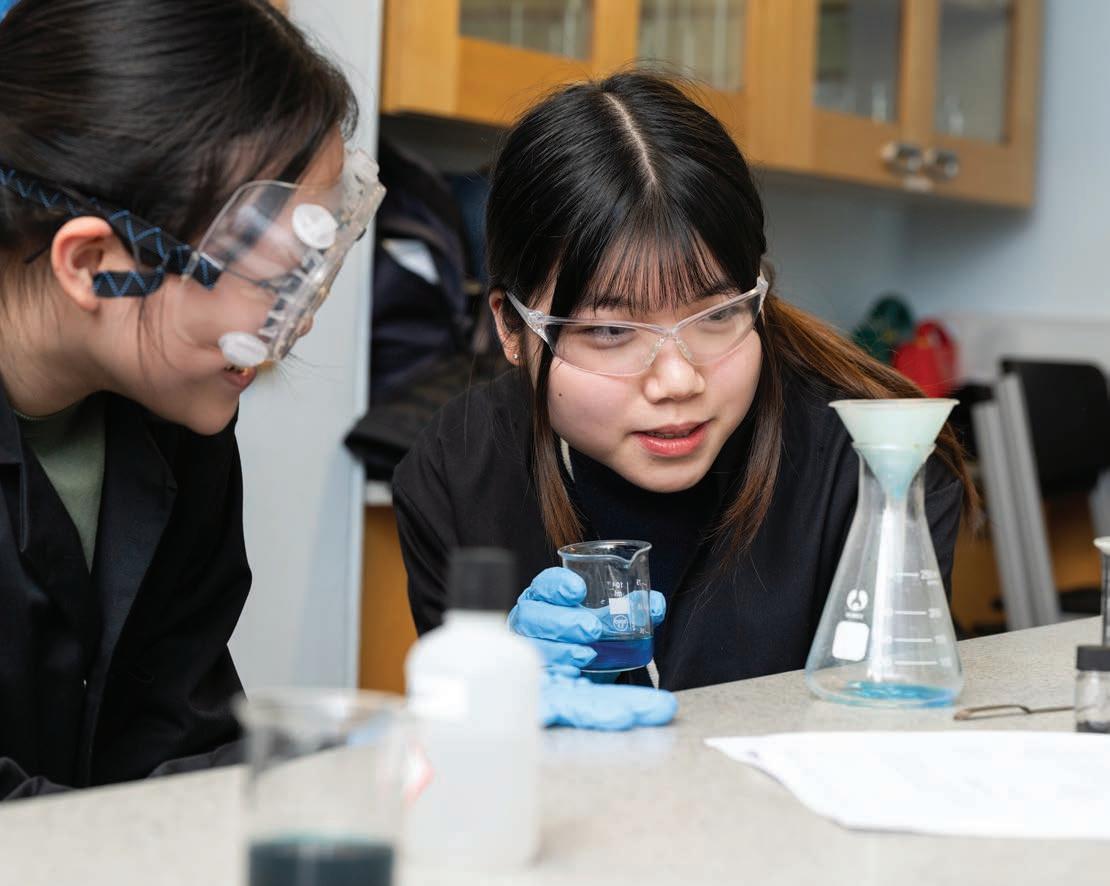
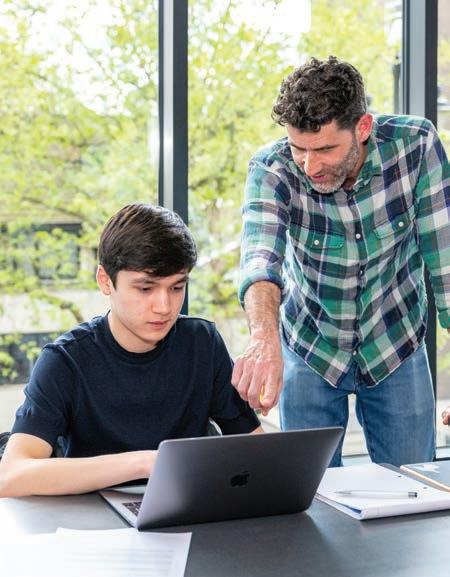
Colleges in London, Birmingham and Cambridge
A level, GCSE, University Foundation
Great university progression
1:1 support tuition
70% UK students / 30% International
Boarding facilities within walking distance
MPW was not just a school to me but also a home where I felt comfortable being myself. I can con dently say that MPW teachers are the most eminent life mentors. ey would guide and support us academically and psychologically. It would not have been possible for me to achieve anything like being the Head of the Student Council or receiving good A level results without them.